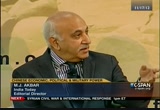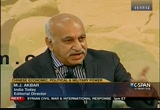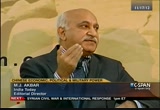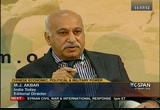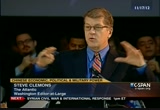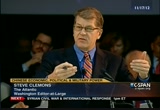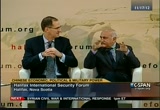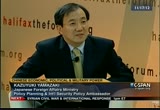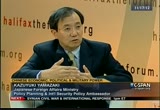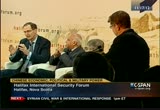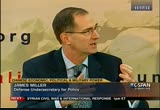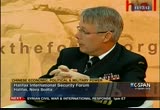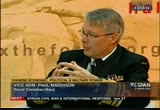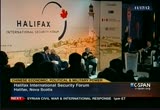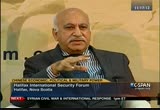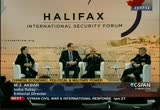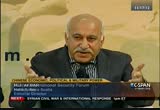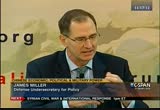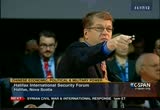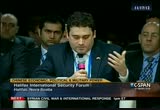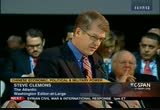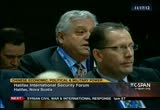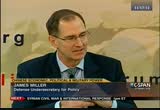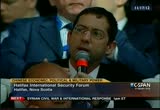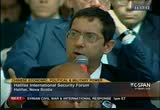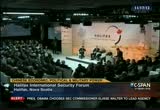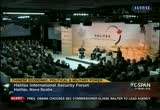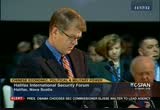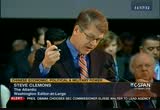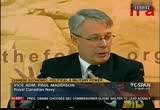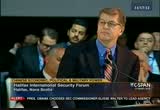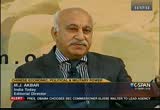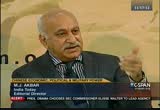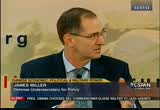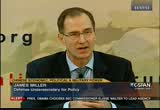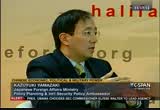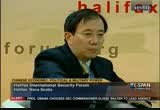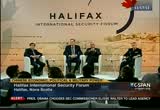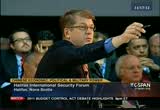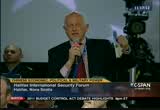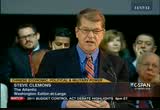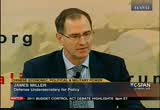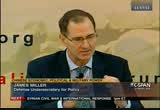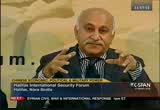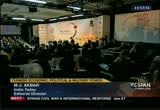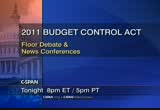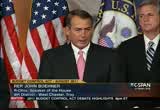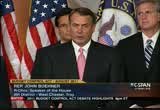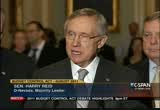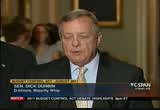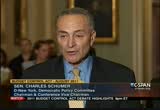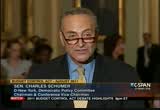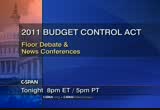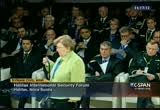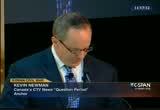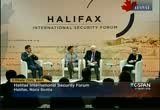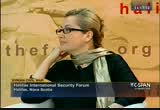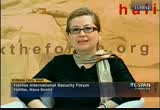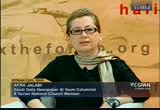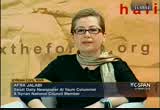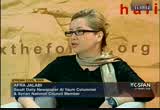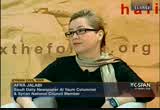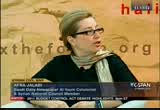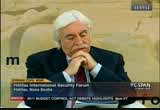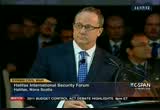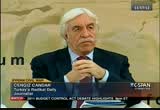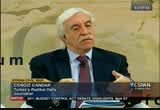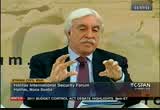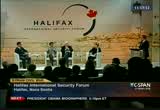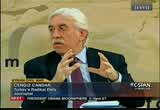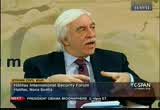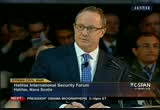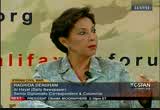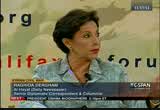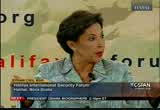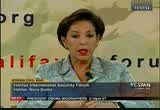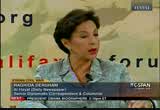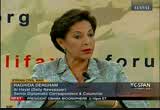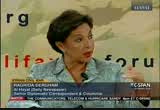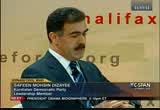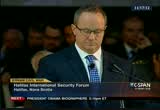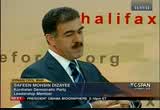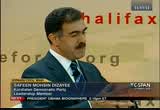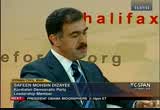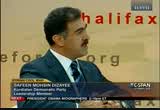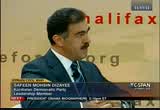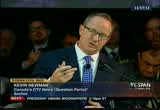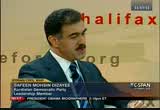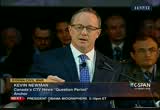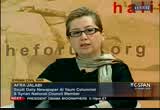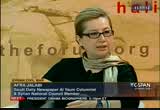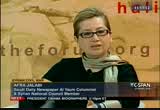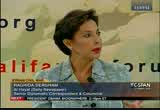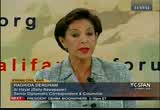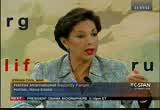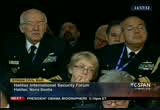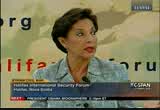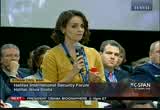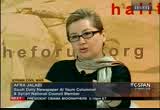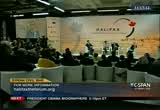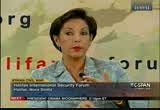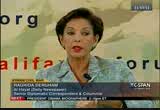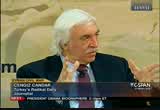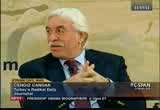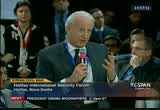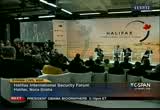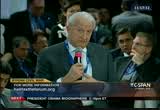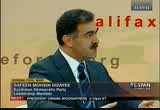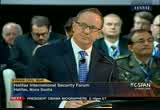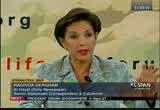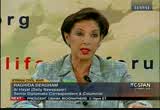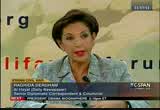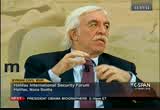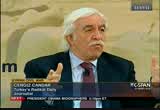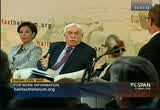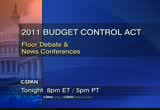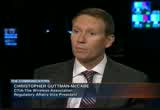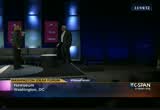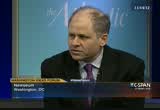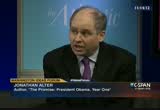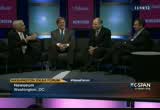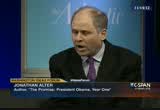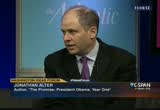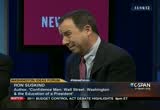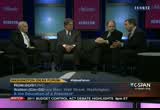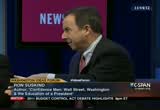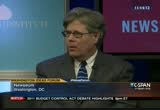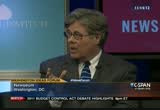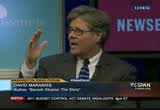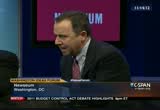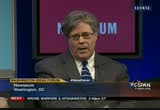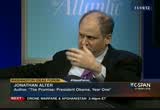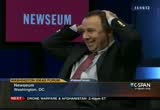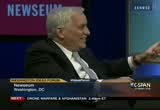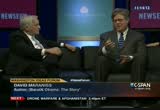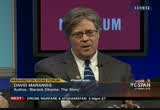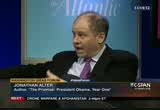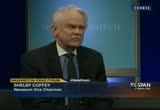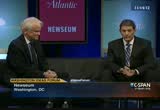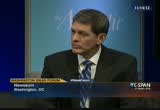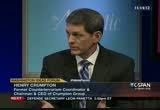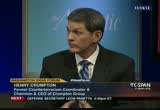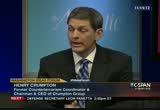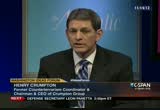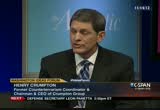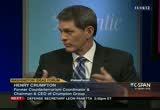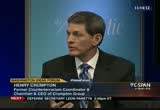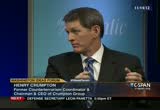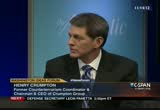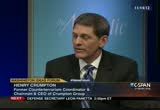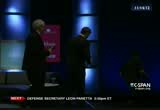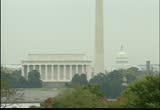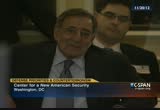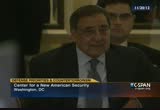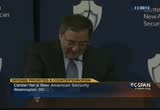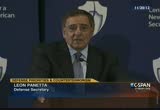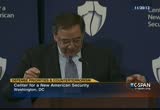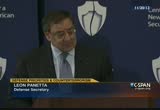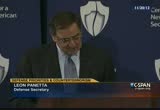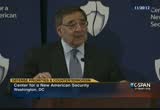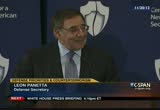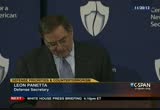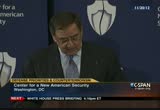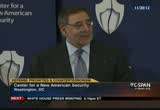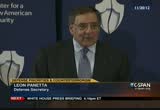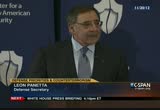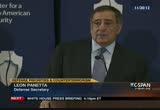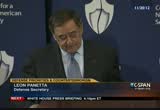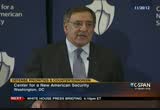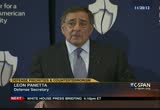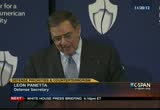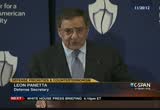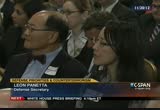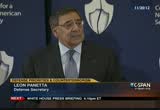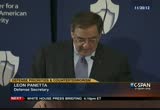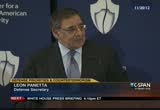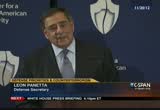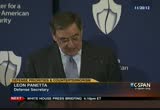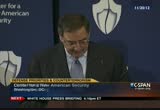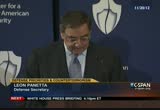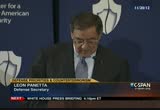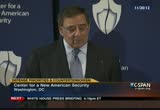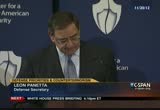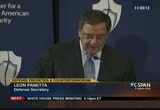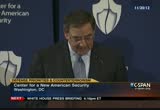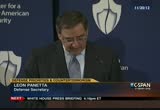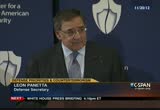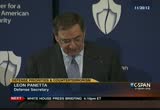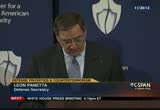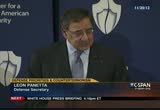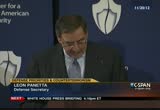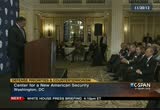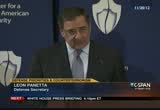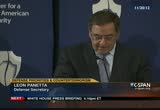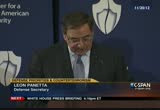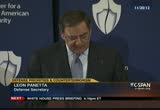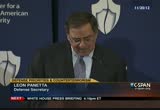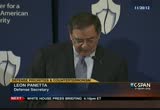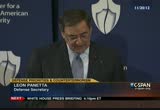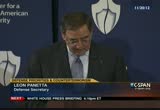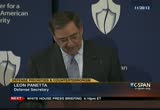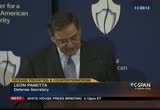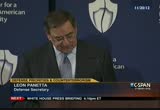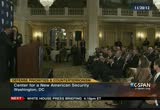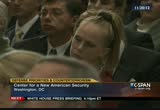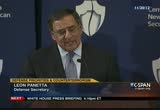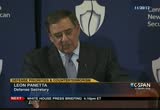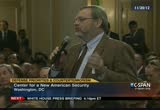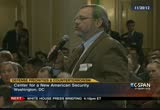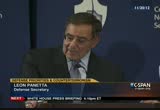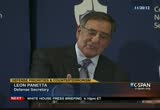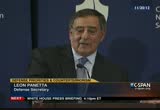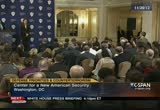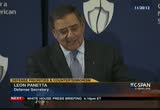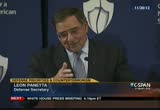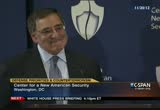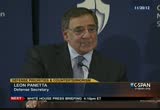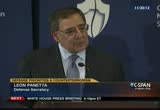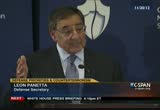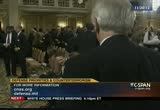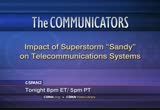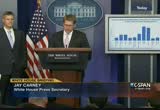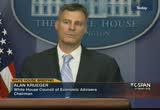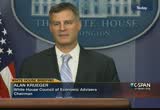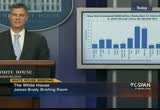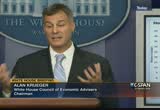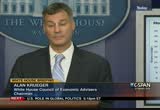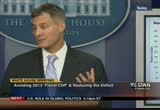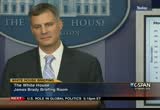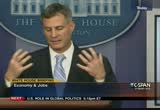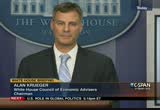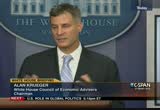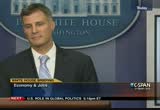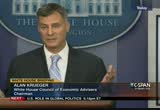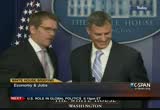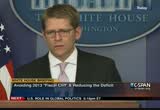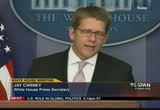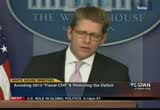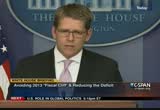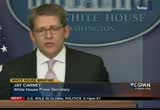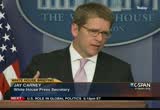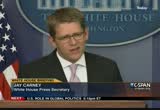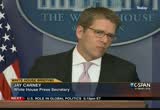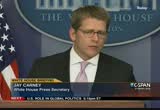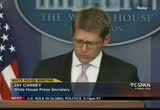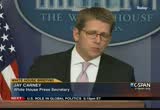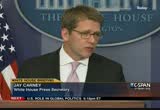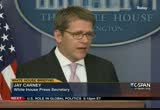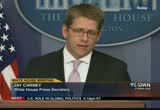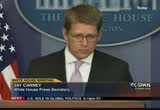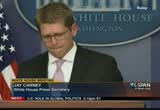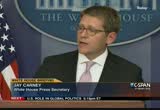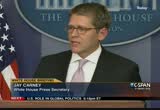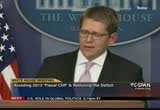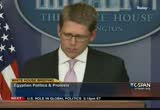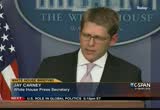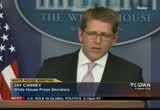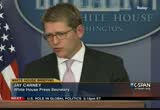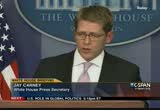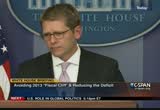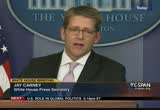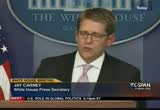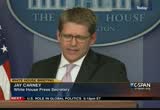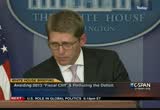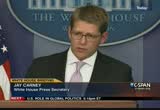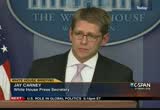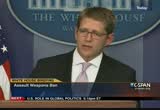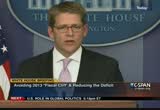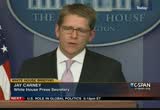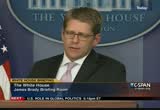tv Public Affairs CSPAN November 26, 2012 12:00pm-5:00pm EST
12:00 pm
what he was talking about, not because he could not understand churchill's english, which was also difficult to understand, but because churchill had just presided over four years in he presided because of his war policy, it would not reach those people. in annual growth in india of 1%. indians understand what this order was all about. they wanted the confusion of independence. from may, 1947 is important because it is the modern 1776. america is the oldest country of the modern world. the american constitution provided us with the template for classless democracy.
12:01 pm
it was not achieved immediately, but it was the template. india is important in 1947 because india is the oldest nation of the post-colonial world. the indian constitution creates an ideological template for democracy. with the emergence of india, china had a different template. very interesting, we see these comparisons, two parties, congress and the chinese communist party, became the dominant force in the post independents space. both had to be discriminated because both came from economically driven needs.
12:02 pm
the chinese offered autocratic left. but had karimov -- charismatic leaders. long story short,ke i i'm waiting for the short part. >> just a little bit longer. both had charismatic leaders, but i [indiscernible] but realistic economic policies that have been following were not working. in one case, you had soft reform of the 1990's and in china's case, from hard left the hard reform. >> right. >> the corruption is causing some much turbulence in nations has actually emerge from economic reform.
12:03 pm
because an economic reform, a handful of people, politicians and bureaucrats, discovered the decisions made by them were creating billionaires. literally. these decisions -- it really revolves around natural issues. mining, forest, and natural resources. it is not encouraging corruption. this great bobble that is taken over the most dangerous things both countries are facing, they have to find solutions that would, out of the anger of the people. >> let me go to the panel. as i look at china, and wrote a piece after doing some interviews that while i sought, and merging with fragile swagger.
12:04 pm
you saw in the contest with japan. you also saw an insecure a complex inside china about the fragility, concerned it if i were really -- they were complaining to me about, couldn't i give president obama to be more clear and forceful in the things he cared about and less inconsistent? they wanted to see structure. part of confucianism is the king is the king, the minister is the minister, the father is the father, the son is the son, and many have government. and have everyone in his or her place. within the region and the world. as china looks at it since of harmony, japan would be -- how you achieve it, their frustration is the world is not just acquiescing to the notion they are a rich country, that there are returning, that there are powerful and what respect.
12:05 pm
they want this to the world kind of step back and give it greater latitude. but doesn't -- this is what i think i personally think we're on a collision course. when you look at what china's expectations of the world are, you also look at its paranoia and mercantilism. jim, you're such an expert in cyber. i would like to see what is going on in the cyberworld. it seems hard to me, despite our best efforts in not wanting to replace history, that the rise of a great power usually and often used to conflict. -- leads to conflict. i want to get conversation from those of you who are thinking seriously, is this supposed to the no-nonsense form of -- form. i think it is easy to predict conflict in history. i would love to hear why that is not going happen given the work of all of your governments in india today. >> i want to ask a question.
12:06 pm
one of the important elements of the new structures, both in india and china, is the role of the family, which are very traditional. never seen as a pseudo modern duty. what is the role of family in japan? >> i think japan is a democratic society changing. we very much cherished the family ties and many in expressing ourselves, we try to be polite. [indiscernible]
12:07 pm
>> what matters is japan has an election december 16 and -- may be back. that was his strategy that if you put together a things -- i want to hear what you think -- i know you cannot talk one way or another about the prime ministers in your position, but this japan really need to invest in structures that balance -- are you worried, given your experience, you have to balance china much more vigorously than in the past? >> yes, most frequently asked questions for diplomats in japan is do we see china as a threat? our answer is, we would like to see china develop as a chance and not a threat. >> what do you think will really happen? what's there is the assumption that china continues to be an international stakeholder in the
12:08 pm
international community and respect the international order with other countries. on the assumption i think we can lock them china's advancement, the development in order to maintain the prosperity of east asia, while asia-pacific as a whole, it turned is very critical element. we want to embrace of china as a kind of source of the prosperity in the region. it is really up to china what course they want to take. >> if i could just add, we have a strong interest in a stable, prosperous, growing china. as we look at how to engage that china and how we engage more broadly in the region, just to outline briefly four key elements. the first is principles. that includes as to think about
12:09 pm
the south china sea moving toward a cut of conduct. it includes the principal these disputes will not be resolved by force or the threat of force but through diplomacy. it includes as we think about broadly, economically, the idea of a level playing field. that means we have very legitimate concerns about intellectual property in putting through cyberspace. the principals are critical. >> which is a pretty profound problem. >> it is a very significant issue. part to his innocence represented by the team up here. partnerships. as we look at the end the pacific, butsia are interesting alliances and partnerships, including with india and indonesia. not really new, that reinvigorated partnerships. our partnership with china is
12:10 pm
critical, too. as we look at both opportunities to build on cooperation and opportunities to compete economically and avoid any prospect, any likelihood of conflict. so those are critical. as to think about the international institutions including regional and more broad international institutions, they are a key part to that as well. the other two are presence, 60 years of history with the united states has provided a stabilizing role toward economic development, and the fact that most of the international trade floats on seawater is a key part of that. we believe we of a strong interest not just the asia- pacific region, the international community. as we continue to sustain and enhance our presence, see that as a stabilizing function. at the end of the day when you have the capacity as u.s.
12:11 pm
military for power protection as well. that is a global capability, but that means their respective of choices that are made by other powers, we want the ability to sustain our presence in the asia-pacific, same is true around the globe. as you look at these different areas, i think there are terrific opportunities to engage with china on each of them. and to finally ask the question and try to answer the question the secretary clinton has been encased in for quite some time and that is, can we get a better answer than we physically had in the past to how a new rising power comes into the international system? in other words, can we do so without running significant risks or falling into conflict? >> thank you. >> i agree with everything the undersecretary said. in fact, the admiral locklear _
12:12 pm
those points the other day in australia, talking about the engagement in that strategic trust again. it is interesting the chinese tend to look at the american asia-pacific pivot as a sort of containment strategy, which speaks to the inability to really communicate with strategic a fact. i think you touched, steve, on an important piece which is the superiority conflicts, if i can put it that way. china fell to they were abused by major powers through the 19th century and well into the 20th century. that has an interesting counterbalance, which as they seem to have a bit of a superiority complex about the solutions they are building about how china emerges as a global power. this containment peace is a bit
12:13 pm
of a challenge. the entire challenge their -- the chinese are making claims with respect to the sea are fairly outrageous. what they're looking for at the end of the day, i think, is respect -- respect at the table and for who they are and what they're doing. somehow we need to find the means to bring these two solitudes together. at the end of the day, any conflict, whether it is kinetic or otherwise, that affects the flow of trade through that part of the world will have an impact globally. >> it is doing it now with china
12:14 pm
and japan. you have to of the biggest economies in the world in a nightmare situation that raises the fundamental question and up in in this myth that economics draws people together. part of the title today is "mischief or miscalculation?" during the cold war, you could have 17 different spheres of contact with the soviets and it two blew up, you could still have 15 others. there was a lot of heavy investment in figuring out how to court made, communicate, due to escalation and talk if things got bad. in this era, when i look at the amount of time -- the obama administration more so than the bush administration, when officials meet throughout the region, and the discussion attempt to correlate with china, there seems to be a lot of effort to try to coordinate.
12:15 pm
jim steinberg was the fourth member of this panel, looking at the island dispute and said, they were shocked and surprised by the level of miscommunication, miss assessment, and the dangers of that between china and japan. it raises the question of whether or not -- i agree. i know china wants respect -- but whether or not what you're seeing is a strategic game or tactical game by china to use this potential mis assessment to look like the unstable part in some of this to basically helped push out its own interest. that worries me a little bit. >> i think the essential question is not of domination or respect, but about whether [indiscernible] will be static or dynamic.
12:16 pm
there is no way nations are going to agree on what the consider to be the interests. you drop a little bit of energy into this thing and it becomes explosive. it is all energy driven. but the issue really is not that is what the emerging world with its -- whether it is time a court india up with different perspectives. i've seen china and india in 2004, maybe 2003, the trade was maybe $2 billion between the countries. today, i think this is where the chinese prime minister comes to india and we're talking $150 billion on the next verizon. this is without drawing claims. i think what asia is looking for is that we can have
12:17 pm
correlations within each other. without necessarily being aided to. it is a dangerous game, but all games are dangerous. kissinger credit a lifetime career out of it. [laughter] this is the way it is. military power is a dominant element of strategy will not work. as a background element of strategy, yes, it's essential, important, including for the first time two years ago, the pentagon had a conference i was there in which we discussed india and american cooperation in the pacific. never happened before. it does not mean [indiscernible] we are taking positions which are corporative, dynamic, and which recognize that nation's change. people change.
12:18 pm
we have to keep abreast of changing conditions, if you like. >> i want to pose one last thing. i look today to see how much china held in u.s. treasurys serves about 1.55 trilion. -- $1.55 trillion. we often talk about power in a classical sense, but there is no doubt economies matter. whether it has been leon panetta, bob gates, admiral mullen, the constant focus on the economic dynamism of the country -- i do not know canada's net account with china, but it raises the fundamental question of whether american debt is an asset or liability. the conference yesterday or recently in davos for someone made the comment that it is the size of the pentagon and the
12:19 pm
size of american that there were too big to fail and those debt holders of a bigger problem that us. i would be interested when you're thinking about policy, from a japanese perspective on the economic side, do you look at that as a source of leverage or this is constrained american options tremendously in terms of what you can do? >> very simply, the u.s. situation with respect to our deficit and debt is a national security liability. we need our senior leadership to take it on. we have an opportunity to do so, a requirement to do so. the foundation of national power is ultimately economic. in terms of global influence, in terms of the ability to support a military, the economic is foundational. i think in the u.s. we have both an opportunity and requirement to get our house in order.
12:20 pm
i believe what hundreds of tatars and 435 members of the house will step up -- what 100 senators and 435 members of the house will step up. >> so we have america under control because of the amount of treasuries? >> [indiscernible] our position to the nine states is very, very decisive to strengthen our relationship. there is no intention for us to use this economic relationship and a different context. we are very satisfied. that's all. >> let me open up to the floor. with four microphones around the room.
12:21 pm
fast.going to go i will call on people whose names i don't know. but that is josh rogan from "the cable." >> thank you for your time today. i think we can all agree the number one issue that poses a risk of conflict with china is its dispute over islands and territories. and large part of the strategy of encouraging the resolution of this dispute is to urge china to subject itself to the international codes of conduct, etc. the chinese response typically is, that's fine, but no reason to use those mechanisms because that island or territory is ours so there is no dispute. of course the push for china to move toward those mechanisms is undermined by the fact neither japan nor south korea is going to follow that logic and what ever island or territory they claim was theirs since the 14th
12:22 pm
century or whatever. my question is, will the japanese submit to these types of multilateral dispute resolution mechanisms regarding islands they claim and will the u.s. urged allies to use these mechanisms in the same way or these -- the chinese use these mechanisms? >> [indiscernible] it is very clear -- from our viewpoint, there is no elements to be disputed. >> and article basically said there was a recognition -- maybe i am wrong. but there was a recognition of control by china over the island. it is an interesting piece that raised questions. i always thought the japan line,
12:23 pm
then mcchrystal said, look at the material and how the king looked at these islands and japan -- they're destined to be a legitimate historical dispute. -- there does seem to be a legitimate historical this be. >> i cannot speak for others. i can speak for china. >> you can say he is wrong. >> as far as i know, the chinese claim is the ming dynasty, some ships come closer to the island. that's all. that is our understanding. discussing based on multi international law. >> right. i know the united states
12:24 pm
recognizes -- who think post these islands? hoodie think has control of the islands? >> whoever has the better navy. [laughter] >> got it. this gentleman right here. yes. >> is this on? henry roth from canada. we heard technology is often the . the forgotten factor. only the numbers show about 50 million chinese men and women are involved in scientific research. like everything else, it has a jekyll and hyde personality. let's leave that aside for a moment with cyber issues and other issues that are important. some could argue that rather large segment of the chinese population is probably one of the most globally connected an
12:25 pm
open parts. looking at a way of engaging china and sing china's place in the world on this important aspect of economic development and political development, county see this playing out? i know both india and japan have engaged. >> responses to the dr. jekyll? >> sun's technology, at math, funnel to the growth of the economy's. the u.s. has work to do there. my oldest daughter is doing her doctorate in math. one of the millers is making a contribution to international security, in any case. with respect to the dr. jekyll and mr. hyde, if the economic growth is fundamental and innovation is the key to that, and freedom and this is a foundation for that, i think we will see this play out in some interesting ways globally including within china.
12:26 pm
as we worked at a very open system economically and take advantage of technology for trade, we do need to look at what needs to be done to deal with the threat of not just cyber, the biotech and so on. we ought to look at doing that in partnership both with our close allies and partners that we work with his starkly, but have that conversation with china. one thing i've spent some time on is getting to have a substantive conversation about rules of the road in cyberspace with the chinese. we're doing that with many others as well. it is a fundamental issue. >> right here. >> and from global security. i think the issue of the islands is primarily an issue of energy. we're seeing all of the world
12:27 pm
that we do not have good mechanisms to deal with maritime energy disputes. it is not only in china and the mediterranean, but the arctic and the balkans. with regard to china and japan, those two countries are not fighting over a bunch of rocks. there are fighting over potential energy reserves that nobody even knows what is in there. they may be fighting over something very little, maybe fighting over something very vast. and the nature of offshore maritime energy reserves, when you really explored and understand what you're actually fighting over, you will be positioning yourself to build a big navy's for the day you will know what is actually happening down there. at that point, japan will be, if it pursues its current energy
12:28 pm
proposal of getting off nuclear power, will be heavily dependent on natural gas. china, which is now running outcoal, would be heavily dependent on natural gas. at that point, he would get to this very, very in fleming situation. i think what needs to be done is go in now, figuring out what is the extent of the reserves, what our reaction disputing over, and began to establish an international mechanism to deal with disputes, whether it is in the context of international agency, which china is not a member of and should be, or independent one. as it stands, this is an energy issue and not a fight over rocks, then we will not able to get to the root of it. >> thank you for your comment. and your microphone to jack. there is a distinction between what you just said that this could be a fight over in earnest issue, and asset versus a fight over strategic lines and the
12:29 pm
perception of power. i think that is an important distinction. jack, this gentleman in the far back and work up to amon and alisa. go ahead. >> i just want to pick up -- >> brevity will get gold stars. >> saying the chinese economy is more oil intensive than either america or europe, imported oil coming from the middle east and north africa. they had to evacuate 30,000 chinese during that time from libya. i would question the need for china to stabilize its sources of oil and is to reserves from that point of the oregon the lead to the same kind of ambition and a geopolitical force as we have over the last 60, 70 years? is that one of the to the kind of conflict we're talking about? >> yes, sir.
12:30 pm
>> canada. at a quick comment i take issue with whether or not it is the vision know what is there are not there. canada and u.s. have an interesting -- >> [indiscernible] >> i think we were a lot better off when it was -- anyway, that is in a side. i want to ask mj the question as to moving from the flash point at the moment, the longer-term issue of the indian ocean and sing china bases in sri lanka and elsewhere. does any regard this as a legitimate protection by china of its sea lanes for commerce with africa where it has significant oil, or does it see ed an instrument -- see it as a threat to india as opposed to a legitimate protection of its
12:31 pm
commercial sea lanes? >> thank you. let me go to alisa. >> with all of the talk about jacqueline hide, i was surprised none of the mentioned the question about how china it treats its own people and human rights. i wonder, earlier this year when a human rights lawyer escape to the u.s. embassy, awkward for secretary clinton at the time, but ultimately led her to say that human rights has to be at the heart of diplomacy with china. i would just like to hear how each of you views the question as to how china treats its own people whether it is labor rights, human rights, environmental justice in terms of the long-term relationship between democracy and china? >> i will take amos and then
12:32 pm
work on the questions. quickly. >> thank you, steve. my question is really for mr. miller. america strategy comes down to borrowing from china to save the world from china. this is not a sustainable strategy. there are a couple of numbers that are important. the deficit, the widest measure of trade, runs about 4% to 5% gdp now. manufacturing is about 11% of gdp. service hervey produces and exports. how the square the circle? >> thank you. with a lot of questions on the table from energy and whether we should have ambiguity on what is in the south china sea or not.
12:33 pm
indian ocean base is, human rights, and the question about borrowing from china to save china. i will start with paul. >> i will start with human- rights question first because i know it is a real strategic dilemma for nations that are engaged primarily economically with china, because there always has to be a human rights imperative. it is either the elephant in the room or is the challenge to getting into the agreements you want to be in. that the said, there are 400 or 500 million chinese living on the same per capita income as nigeria with $2 a day. that is always a real concern for the chinese and a one-party state where the military and internal security forces are also party entities. a real challenge. i want to touch on the question
12:34 pm
about or questions about the islands. i think the island disputes are a tactical demonstrations something more strategically important. which is whether the rule of law is one -- the nation's of the most important agreements, perhaps the most important agreement, of the 20 century because it has resolved the conflict between state control over resources at sea and the need for the freedom of the seat to allow global light trade. whenever there is pressure put on the system of [indiscernible] that pressure needs to be challenged because if it is not, there'll be other nations who
12:35 pm
will push the limits. it could become quite a stabilizing the 21st century. it is very important, i think, to look at the china sea to say, what if china's real ambition -- what is china's real ambition? they talk about the rapid expansion of the navy and use the term "active defense." they're taking that continental interior looking at the view and applying it that sea to protect themselves but also i think to secure the communications for the energy flow into asia along the sea lions. as long as it is done in a constructive laway. then that is good. the contrary is not.
12:36 pm
the question from indian ocean. and it does not take well to the construction of water, which is a religious standpoint it in massive an infrastructure. i think it draws attention not just to what india thinks of it, but water is at the heart not only of the world's most dangerous or son, but also the world's most dangerous civil war zone. while we're discussing many things, we're underestimating the potential of have it within pakistan upon many of these new infrastructures that have been developed in china. it is certainly far more concerned about [indiscernible]
12:37 pm
then east to be five years ago. they have been attacked in that region. karachi is self, attacks within karachi, the pakistani forces have not been able to contain them. they just forget about them without investigation. we're not just in the construction of facilities, but the construction of fortresses that may not be within the control of those who have built them. with consequences. i also wondered why we're discussing iran when it is at the top of everyone's concern and visibility. we're forgetting pakistan is nuclear and maybe more dangerous potentially then iran's nuclear -- nuclear crescent of continue ou--
12:38 pm
china, definitely. japan, potentially. [indiscernible] [laughter] and in russia. 7% of the world's energy is here. -- 70% of the world's energy is here. briefly on human-rights, i do believe actually the great difference between democracy and dictatorship is simply this -- a soft assets, but an important one. and it does not have human- rights that i necessarily proud of, but india does have accountability. china can only become a modern nation if it permits democracy and if it permits secularism, that is equality and presence of
12:39 pm
trade. until then, it can be successful, but not monitored. >> i want to say three things quickly. i want to follow up on the admirals' comments. it is remarkable to many in the u.s. military that the u.s. is not ratified the convention. we had it pretty sincere effort to bring afford to the senate. we worked a couple of the votes short. i think senator mikulski for her support. i hope we will be allowed to take that up again and get that done as a country. it is challenging to make the case we're making, which is that these potential conflicts over territory should be resolved on the basis of
12:40 pm
principles when the final convention that governs us is one that we have not ratified. >> i don't to burn much time, but i want to push back on a point. as the raising with respect to what senator mikulski has done, but george w. bush supported that treaty, other supported that print i asked harry reid of years ago, you're back in power and that the president, why are you pushing it customer he said, "steve, i wish we had time." both parties have let it sit. as a journalist, i want to remind people there has been institutional neglect on both sides, which accredits the senator for now moving, but it has been interesting how people did not see this before and earlier periods. >> i think that is fair. the reality is in the last session, we were literally one vote short from moving forward. i should say the senate was barred the department of defense afforded. despite its importance, i would put it behind us, taking steps
12:41 pm
to get our economic house in order. it is fundamental to long-term security and fundamental to our core -- global leadership role. it is really the foundation of our long-term power influence as a nation. with respect to human rights, one of the principles that we need to understand and follow is that human rights do matter. >> i want to take that two issues promptly. first thing is energy. east china sea, when president hu jintao made a visit to japan in 2008, we made agreement with the chinese government to exploit the oil wells in east china sea. we wanted to start the consultation based on agreement
12:42 pm
that china refusing to hold meetings. even though there was agreement between the two leaders of the countries, no development. we're very much disappointed with that situation. a sobering issue, there are claiming it is their island. a totally different dimension from the energy issue. human rights. we also highly regarded human- rights to impress the importance of the human rights in china. with a better consultation with them. a part of the human rights, the information's fear in china is totally different from canada, the united states, and japan. the people in china do not share the same information as we have here. you can compare it to no. parts
12:43 pm
of -- prices, literature and the peace prize, information deficient inside the countries is totally different. very little people know about the peace prize. this is one example. and there is broad room to be improved. >> with a hard stop at 11:30, which is in for five minutes, i'll ask for 30-second interventions. it will get as many as we can print right here, this gentleman. you go ahead, but 30 seconds. >> [indiscernible] >> this is recorded. one of the features of this panel is miscalculation. if we go back to the cold war era, we can see one of the important artifacts is the si agreement between the soviets
12:44 pm
and americans in 1972. >> can you identify yourself? >> i work with the canadian navy. i am interested in the potential for instability at sea and east asian waters as a result of the utilization of fishing craft as proxy's or various other non-military or paramilitary naval forces. what is the potential for some sort of agreement to diffuse these miscalculations? works great question that i'm sure we'll get to drink coffee. >> i want to ask the panelists, what did you think of china's plan for solutions for syria. china cannot recently with a four-point plan. did you take this seriously? if so, could this be part of the new normal, china looking at a crisis the west is unable to solve far from its shores and saying, we have a position to take and could play a role on this? >> on to the back row.
12:45 pm
thank you for your brevity, folks. >> early in the discussion, you had asked about the dispute for the islands. your response was the chinese response was part of a long-term plan. in recent years, we have seen china make tremendous efforts certainly in the western hemisphere and africa to build an infrastructure to gain access of raw materials. at the same time, we have also seen them a tremendous efforts to build military to military relations. my question for the panel is, is that military dimension just an effort to protect economic interests or is it some part of a long-term plan to help lay the foundations for their assent to the position as a global power? >> one last gentleman and what
12:46 pm
neil diamond would call the tree people, hot august night. this gentleman. run the microphone to him. >> [indiscernible] >> wait a second. >> none of us should be complacent about china's rise and there is likely to the challenges ahead, but i think we should pay closer attention to the kinds of things the chinese are saying about themselves and their own priorities. in particular, paying close attention to their remarks of the scene to the new president of china who 48 hours ago made some important points about the challenges that china has domestically and relations to a social change and economics and recalled, interestingly, lifestyle. this was very differently in
12:47 pm
style and tone and content to recent speeches and deserves closer attention. >> i totally agree. you get the final comment. >> the first comment -- >> you get one comment. >> their use in the document which is archived from our library and a very different context. it is very inaccurate. >> the christoph article? >> gazprom >> that is a strong statement nick kristoff is wrong crib helpful. i asked our friends on stage with they did with their hobbies. paul's is hockey. jim is tennis prevent severe and cricket. -- jims is tennis. there's also crickets and skiing.
12:48 pm
iran will be the u.s. because iran plays chess and america plays baseball. i remember during the gulf for one said, americans play tennis and we play golf. i think it was. to some degree when you think about these kinds of questions about strategy and how you're thinking, i do think those i know that think -- with this question about where ton is going, how it is thinking about this world -- my sense is the chinese strategists are very smart, have a plan, began looking at assets. i don't know the chinese name for "go," the black chips and white chips, but i think about u.s. strategy cannot speak for canadians, but with the exception of jim miller, we tend to be more reactive right now, in my view, then we are strategic. i do since there is a strategic game that china is playing with -- in closing, beyond responding
12:49 pm
to the final comments from those we assemble, i would love to get a quick snapshot of your assessment of chinese strategy in the world whether you take it seriously or think china just simply wants to lie low and not push these buttons. as quickly as possible, please. >> china is trying to advance to the world and secure energy and influence. that is their goal. in a sense, it is natural for any country to do so. [indiscernible] abide by the international rule and follow the international consensus. that matters. that is my kind of -- >> thank you, jim? >> i see them taking a long-term view. as they do that, i believe the chinese have the same interest that we and the rest of the
12:50 pm
international committee of managing a rise in the international system, and that will take active management, take the top of discussion we refer to today. in a brief comment on the question about china's role in international diplomacy, if we look at what they have done with respect to the six-party talks and the positive role in engaging north korea recently, as we look at their continued role in the p5 plus 1 in iran, i think that will be an interesting conversation in the coming months. i think you see them play a more active and positive role in international diplomacy. on syria, we have some work to do. you saw where we were headed with respect to syria based on secretary clinton's recent comments. but china is strategic. china has strong interests in managing its ascension as a
12:51 pm
global power. we're not the only rising power in the neighborhood. it is something that we share. i believe both we as the unit's states and the community of democracies have the ability to act strategically and act together, doing it based on the first to principles of partnership. >> we are a rising power, we just do not have a large advertising campaign. [laughter] i just want to comment briefly on china's plan was syria. it has nothing to do with -- syria, and everything to do with wounding america. in this, china and russia have gotten together. join some sort of a deal, if
12:52 pm
you want to use the four-letter word. india has resisted, thankfully, and keeps its options much more flexible and nuanced. china's national game, dr. kissinger has three chapters in his book on the game. the interesting thing about that and it is very [indiscernible] the game is not allowed to touch them, but they are not to touch everyone else. the game is relevant to how they behave, particularly with their neighbors. on our national game in india, that helps us all to understand us, the good thing about cricket is it is not a single game. it is many games. we want to play fast ford, we turn to [indiscernible] the diplomatic game is the test match. it goes across five days. it is hard for any sport to go across five days for the
12:53 pm
indians and the british are good at it. [indiscernible] [laughter] >> your final word, paul. think the chinese strategy will be increasingly focused on internal challenges as a huge emerging middle-class probably ignited by some democratic momentum will come into conflict with the one-party state, but externally, there will look for energy as the ambassador has said, meaning they have to engage with the system of the world's and we hope that it is a positive engagement and a constructive one, and not one that brings more conflict around the globe. >> i apologize to many of you whose constant questions we did not get to. i want to thank you our panel. thank you for your insights. [applause] >> thank you very much, ladies
12:54 pm
and gentlemen. remember, we do not get a great panel discussion without a great moderator. we certainly mean that. >> more from the halifax security forum in a moment. some news this morning, president obama has and the lease will to to lead the securities and exchange commission after the announcement that the current head of mary schapiro is stepping down next month. she is one of five members of the sec currently. she was appointed to the sec by george w. bush in july 2008. the president said dik-dik i'm confident her early years will serve her well and the new position and am cripple shias agreed to leave the agency. with the content congressional negotiations are the sequester and tax cuts to expire at the end of the year, tonight and prime time, focusing on the beginnings of the debt of the debate on the national debt. c-span will go back to august of last year to review some of the debate and is congress is from congress and the white house to
12:55 pm
run in the passage of the budget control act. the law created the automatic spending cuts to take effect in january along with some expiring tax revisions as part of the so- called fiscal cliff. it airs tonight it it o'clock eastern-- a o'clock here on c-span. >> in january, our first week we were sworn into office, the president ask for an increase in the debt ceiling. i made clear at that time there would be no increase in the debt ceiling without significant cuts in spending and changes to the way we spend the american people's money. shortly after that, i was in new york and gave a speech and outlined i thought the spending cuts should exceed the amount of debt limit increase and there should be no taxes as part of this agreement. when you look at what we have been able to achieve, we have met those to standards that have
12:56 pm
been outlined. the american assistance it is time for america to deal with its spending problem and we made promises to the american people that our kids and grandkids just cannot afford. in addition, we of work with our members and listen to the american people. we have a real interest in making sure we don't get into this spot again. and we ought to have a balanced budget an image to the constitution. i think if you look at the structure of the balanced budget issues in this agreement, it gives us the best shot we have had in the 20 years i have been here to build support for a balanced budget amendment to the constitution to put the kind of fiscal handcuffs on this congress that are sorely needed. with an operating under a balanced budget commission -- if we have been operating under a balanced budget, we would not have gotten ourselves into the
12:57 pm
mess we're in. it is also important for the fact our economy needs to get going. beginning to take steps toward fiscal and our fiscal problem will provide more confidence for employers in america -- fixing our fiscal problem will provide more confidence for employers in america. >> think about where we were in the beginning of this process. the president was asking for a blank check if he did not get that. then he was asking for big tax increase on job creators. he did at it that. we said, every dollar of debt increase you have to cut more spending. we got that. we have been trying to get discretionary spending caps in law since i've been here for 13 years. with in introducing legislation for the last eight years to get caps on spending. we cannot even get caps on discretionary spending the last time the republicans were in the majority. we got that. that is important. we see this as a good step in
12:58 pm
the right direction. as a decent down payment on the deficit, it is a huge change in the culture of spending. we are cutting spending. we are spending less money next year in discretionary spending and last year. you have not heard that kind of statement before around this town. we have a long way to go. but we really do believe that the value of this republican majority has been a change to this culture. in the old days, we had the gephardt rule. that meant you could just sweep a debt ceiling increase and no budget resolution and no one would have to be seen voting for it. when we took the majority, we repealed that gephardt rules so we would do this in plain sight so the public could see. what we did with that was used this as an opportunity to change the culture and spending, and that is what this bill does. >> the debate was long and not easy. for weeks the american people have watched and wondered
12:59 pm
whether congress to get its job done. well, we got it done. it brought our economy back from the brink of disaster. in the end, the sides -- two sides came together. neither side got what they wanted. each side laments some things we had to give up. but that is the way it is because that is our system works and what compromise is all about. it was a bipartisan compromise. it was not the right wing cap cut and what ever it is over there. that was not bipartisan. it is nothing we could agree to. it was short term. it is really a disaster for america. this agreement cuts the deficit by $1 trillion and lays the groundwork for much more in the near future. we look for to the work on the committee to make sure that
1:00 pm
millionaires and billionaires and corporate owners and people who have this not get tax benefits, will bank companies to get these huge tax subsidies -- that is what this select committee is going to be about. we need to do more for families. the number one job at the congress must be creating jobs for the american people. -- the number one job as the congress must be creating jobs for the rare good people. today we made sure america will pay its bills, now it is time to make sure all americans can pay theirs. >> with this boat we have averted a crisis. -- vote we have averted a crisis. the fears and concerns of americans across the board were considered by this congress, and as a result, we come together on
1:01 pm
a bipartisan basis. i did not vote with this with a great deal of enthusiasm, because the down payment comes primarily from working families and those struggling in america. if we're going to address this debt, we'd have to put everything on the table and bring everyone to the table for shared sacrifice. the joint committee has a particular responsibility here. another 1.5 trillion dollars in savings. let us make sure that when we do it we do it in a fair and just manner for all the people in america, and when we return that we address the number one issue in america, creating good-paying jobs for people struggling in this economy. >> well, now washington and the world can breathe a sigh of relief. the horrible crisis that would occur if we defaulted, the
1:02 pm
likelihood of recession has been averted, but we have a lot more work to do. a lot more work to do. the bill, which had things that were mentioned, had a lot of things we did not like. it had some things we like, but it really making sure no benefits in medicare, -- social security, and medicaid were cut. but, it is now time for congress to get back to the regularly- scheduled programming, and that means jobs. washington has been consumed with averting default, the nation's unemployment problem has been worsening. it is time for jobs to be moved back to the front burner. with the debt reduction package completed, we now have a single- minded focus on jobs for september by removing the threat
1:03 pm
of default for the next 18 months and by proving both parties can come together to get our deficit under control we have provided certainty to the credit markets. the debt limit agreement largely resolve the budgets for the next two years so the wrangling over spending should be greatly reduced in coming months. we now have a chance to give away from rigid put it away from budget battles to jobs. the jobs issue will not have to play second fiddle to the issue anymore, andhis that is what the american people want. now there will put the political premium on efforts to create jobs as democra. as democrats, that is our high ground. we welcome this chance to shift the playing field to jobs. >> you could see more tonight from august 2011 as congress
1:04 pm
considered and passed the budget control act, creating the automatic spending cut set to pick a peck of geographers. it all starts at 8:00 eastern tonight on c-span. more now from the halifax international security forum in nova scotia. this discussion with of the cyprian -- syrian war in response. as well as the influences of iran and russia. this is just over an hour. >> thank you very much. you hope their first date is timely. boy did they guess right. i am a news anchor, so if you were not able to catch the headlines this morning on any number of issues, here they are. israel bombarded the gaza strip with more than 180 airstrikes today. the king of jordan has canceled a visit to britain under the protest there.
1:05 pm
"the new york times" reporting the pentagon says it could take more than 45,000 troops to contain them. i cannot remember a time of more moving parts in the middle east puzzle than right now on this day. so much is new, and they are all inter-connected. hamas is testing is real. israel is testing egypt. there is more uncertainty about israel and the end of -- the relationship with iran. what is hezbollah doing now that they are involved in their own fights inside syria? the opportunity for turkey to play a role right now. it just is the normans. this is probably the least secure discussion there is. i am reminded of bob dylan's favorite song.
1:06 pm
i propose we adopted as the anthem. there must be some way out of here. let's aim of for some relief, and maybe a little less confusion. i would like to propose the following format for the beginning of the panel. then i want to open it up for a lot of questions on the floor. i would like to propose our panelists talked about the situation right now, especially in syria. but what if scenarios, and their recommendation and context and perspective on greater security in the region and what steps might be taken in syria in particular. the people we have on the panel today have their year on the ground. y are constituencies there ar people whose opinions are sought. i would like to introduce a
1:07 pm
member of the syrian national council. she holds a bachelor's degree. she is canadian. appalling-side agree. journalism degree and working on her ph.d. at concordia right now. a very popular columnist in in stan ball. he has lectured in instant ball instead of the woodrow international study for scholars. also served as a special adviser in the early 1990's. a columnist and senior diplomatic correspondent. she was named one of the 100 most powerful arab women last year. appears that u.s. cable news channels quite often and the founder and executive chairman of the independent think-tank beirut institute.
1:08 pm
the recent minister of education in the province of northern iraq and was a standing in member of the governing council in u.s. authority in 2004. he was exiled to the u.k. and has returned to his homeland and claimed a very key role in its developed and. let's start big. less oprah, fewer speeches. i would like to begin by asking the panelists to take a bird's- eye view first. how to use see the flow happening in the region generally, syria in particular, and where do you see some connections happening? , everyone. i am replacing my colleague from
1:09 pm
panel.rian national colleagu i am doing my ph.d. on the non-i live movement in syria. -- non-violent movement in syria. it will be interesting for you to hear my perspective and interesting to hear yours. i view it as the successful failure of non-violence in syria. the first six months were markedly not violent. that did not happen by chance or coincidence. there was a great deal of planning and consciousness behind it. however, syria has been isolated for a long time from the international community. people felt they have to ring gauge in self-respect and started calling for a no-fly zone.
1:10 pm
the latest slogan in the demonstration in syria started asking for international intervention. it was around this time the syrian national council was formed. the mandate was to bring help to defend the civilians protesting. the main reason the syrians did not want to back up has to do with what happened to them in the 1980's when they brutally crushed the rebellion, especially those centered in the city. 8000 people in a 27-day campaign in the month of february 1982. they felt if they backed off they would be severely punished. after 1982, the next 10 following years, government punished the syrians collectively. there were about 18,000 forcibly disappeared people whose files
1:11 pm
are still not closed. thousands and thousands of prisoners. the syrians felt they had to continue at any cost. when international help does not come, the idea of the fed started forming -- defense started forming itself. those soldiers started forming small groups to defend what they called the peacefulness of the revolution. they started calling around buildings, because that is where snipers used to shoot a peaceful protesters. what happened is in order to achieve the defense of civilians, the small groups that increasingly became joined by civilians that -- that took of civilians, families and suburbs started engaging in a more pro- actively approach.
1:12 pm
however, even when they succeeded in liberated their areas, they could not protect themselves in the air. the regime still held air power. the regime started showing people, including the use of bombs that could go through several story buildings all the way to the basement. the syrians found themselves defenseless, and at the moment they feel quite abandoned. we tried to bring a more coalition of movement in becoming a hopeful 0.4 syrians that the armed struggle, if it goes under civilian leadership, it would be to better results.
1:13 pm
this is the real fear of syrians. i talked to some of them yesterday to get their perspective. the message they wanted to bring to all of you is the democracy movement, the human rights movement feel abandoned, not just for the past three years but for the past few decades and all of it has come to this point where in the west there if hon. security and the arab world is almost imploding a civil society. thank you. >> a quick follow-up. the development last week. but it's the best way your contacts say it can be given weight, and secondly, insurances -- assurances that might take advantage of the situation? >> people in opposition and on the ground field the coalition has to be given a chance, because at the moment it is the
1:14 pm
strongest viable option to contain the civilian leadership. because they have chosen a moderate reformer, an engineer by training and also comes from a long line of islamic scholars who has progressive ideas, including this idea, and also the head of the syrian national council from a christian background, and a secular feminist. they feel they've represent them and that they have legitimacy on the ground because the recently came out of syria. >> thank you. turkey has gone into a couple of altercations already. give us a sense of the flow in the region. to >> [inaudible]
1:15 pm
he has said that [inaudible] syria does not exist anymore. the syria we used to have since the foundation following world war i and independent states falling -- following world war ii is no more. the magnitude of human tragedy, the population exchanges, and the damage done that to the infrastructure of the country. we're talking about a conflict
1:16 pm
1:17 pm
1:18 pm
what did we not see him raining over syria and how will it be achieved? we will never find syria and place in a country. i think in the western world there is one aspect of syria that is not very much noticed, which is the turkish aspect of it. arab countries used to think of them. in iraq inworld and iraq i 2003n 2003, the regional government
1:19 pm
1:20 pm
uncertainties. >> kurdish population has remained largely on the side of armed conflict. you predict that once the regime collapses there will be demand for kurdish autonomy or increase kurdish autonomy. do you see them in syria helping to defeat the assad regime? >> they placed themselves in the middle because they have not reconciled get because of the air of that of the opposition. they want an area of commitment -- arab commitment.
1:21 pm
and our part of the world, the concept of dismemberment and fragmentation. they want to see syria and itself. closerinority lighrights are to whoever the minority are. [inaudible] it does not necessarily mean they are cooperating with the revolution or not undertaking any index for the collapse of the regime.
1:22 pm
1:23 pm
council? >> i want to re-enter your original question of the larger picture of what may be going on. i want to say thank you for inviting me this year. last year i was in your position. i am a lebanese citizen, an american citizen. a liver in -- live in new york and cover the united nations. that is how i look at it from a national approach. what everyone to think about is going on in the region now, everyone is looking at washington, what will the new president of the united states, the president of a second term, do about what he promised to do. what looked at the 3 obama promises. the first promise was when he said he would not find a solution. -- let's look at the 3 obama
1:24 pm
promises. second from a that the president of the united states was when he said the united states would never allow iran to be a nuclear power. this is unprecedented, where there are bright -- but the right or wrong. this is a statement made by the president more than once. this was the collection of promises made to the indian prime minister. how has president obama of filled the promise? is he going to absolutely implement this? and what are the israelis do we? from my point of view, one of the activated parts of the operation is that they are giving hamas a leading creating
1:25 pm
a new dynamic for shaping the new dynamics and shaping an alliance of the muslim brotherhood leadership's, be it in egypt or turkey or qatar. it's a deliberate move to undermine the palestinian authority. the change of subject, is the least -- at least by the israelis away from iran in syria to god that is a very fascinating development. is a temporary or board to be an ongoing -- how long will that change of subject last? sometimes leaders know better. they feel they will have to contain escalation. maybe that is what they have in mind does the work contain and
1:26 pm
this part of the region we live- in? the third promise president obama made is on the chemical weapons. we understand right now there is concern there is a need of 70,000 troops in order to secure the chemical facilities in case there is any suspicious movements by hezbollah for the g hottest -- or the regime using the chemical weapons. what move have been made to provoke a promise? i really do not know. i would like to help us with that answer. i think eyes are always on washington for leadership. whether they like to would make
1:27 pm
it or not, the lack of leading from behind it becomes a problem for the region and for the united states. i think the last meeting that took place in cairo regarding syria -- the first meeting after the american elections and there was a very interesting dynamic there. the saudi arabia, united arab emirates, with europeans in the united states. the trio started to say let's think of a strategy to help the new coalition of syria. that means what services not good enough. they need tents in a very substantial way. army is now on the table. putting a bill is not the problem. the arabs will do that.
1:28 pm
no one is talking about american troops on the ground. this is one of the most important elements. why? because now in terms of how it can be taken for work with russia and china. and the question that will be asked that needs to be asked is that the strategy is needed to go to the russians and send basically -- and say now what do you want? what is it that you want? is it doable to deliver what they want? what are the consequences of that? from what i understand, maybe president putin has given a signal he wants to talk. from what i and a stand when the foreign minister of russia was meeting with the gulf ministers, i -- my information is there
1:29 pm
were standing exactly where they work. i think a strategy of needed. the matter how much we try to run away from us attrition in syria and israel, is heavy footed. >> one follow-up question. do you see the current situation, and we talk about changing the channel. is it -- how likely is it an opportunity to change the channel and get an engagement with israel? >> you have to understand the era of mindset. now that there is gaza and bickering and animosity, they will discuss palestine. it is a common ground.
1:30 pm
the danger of changing the subject away from syria is a multiple-faceted. i do not think this will be an opportunity to strike a deal for the syrian regime and israel, but maybe it is already here yet we can talk about that the element a little more later, but i think the israelis will have to decide actually what is in their interests? is the better to consider these jihadists are dangerous for them in a despicable up with the regime? if that in their interest or in their interest to actually understand that this regime is going. it does not matter if it's been a month or two. therefore to hasten it is to cut
1:31 pm
short the empowerment. and it would be weaker if it is done faster. but that they are there in strong -- and strong is a hesitation. >> we have had a couple discussion about the overall flow. thank you very much. good to be here. i think the syrian regime has been expecting such developments for quite some time, especially after the regime change in iraq. on several occasions some of the groups were based in syria and governing council members were on official visits beyond the bilateral ties they had.
1:32 pm
all visits there were asked to his next on the list? they were pretty sure it is iran and syria. that was in the early days or months of the iraqi war. as things started to look it wast ugly and iraq in iraq, the site of relief for them. and as the event in north africa has speeded up the process in a way to engulf the area, at least to promote such an ideal regime change in syria. the developments in the past two years has been somewhat calamity
1:33 pm
with all of the killings of 35,000 lives being lost and the davis to the infrastructure. unfortunately the response or the efforts of the opposition or support of the opposition has not been matching the calamities or the wishes and desires of the syrians for the change. this may be attributed to the internal and external factors. all of the external -- internal factor of opposition. the first few months it was very peaceful demand of reforms. it took months thereafter to be responded to by heavy military
1:34 pm
exercises by the regime that continues to this very day. the internal opposition for the rebels or the freedom fighters, and the political winds that mostly are broad, they may well be known solid interaction between the two, and not a clear agenda so far. yes, there has been meetings in turkey and other arab countries and more recently in dovehar. qatar is a small, gulf states. it was a big event for them. whether it is the close of innocence that all opposition figures and key figures are within that structure. i would say the formation of a
1:35 pm
new structure is probably either premature or a late delivery. premature in the sense it is not that occlusive. late delivery, two years of this destruction, and they have not been able to come to this point that is satisfactory. then there is international intervention, such as what you had in libya with the no-fly zone. i think this will continue. unfortunately the syrian people will continue to suffer. on the kurdish front that was asked a bit earlier, initially the iraqi courteous -- kurdish leadership are somewhat cautious and did not fear any
1:36 pm
developed or changes. this could have easily been manipulated by the regime to accuse the kurdish of and as always the sec is real and so on and so forth. it was very, i think, a wise move to really attack with opposition groups, but at the same time to be engaged in things. to the extent they have been able to control certain areas by the security and -- the syrian security. at the same time, they took part in many opposition meetings and gatherings. however, they were reluctant to continue and be part of that due to the very fact that the opposition did not have a very clear agenda or strategy or road map. literally for the future as a
1:37 pm
whole. yes, democracy is a fine thing, but it ends there. without having that clear strategy and rollout, i think we will go around this vicious circle for some time to come. on the issue of the kurds and concerns turkey has, i think the concerns are genuine. it will not spend 20 years or so being rolled themselves. however, there are circumstances of turkey similar -- different to that of iraq and syria. the area of turkey, almost 900 kilometers, a large park its rigid large pockets, houses have expressed concern over the dominance in the area, and
1:38 pm
particularly a group called pyd, which is thought to be close to pkk. there are many turkish groups on the scene. turkey can reach out to them to operate in a grenade, because anything may happen. 100 years ago we saw major developments in the middle east of the the first world war. after that very critical point, they're very well may be changes in the region. in any event to melody, the people of the region need to be revealed. i can say very briefly syria is a serious business. >> you let the border thing for the end of the conversation. it is obviously the most contentious. give me a sense of how close the
1:39 pm
relationship is between kurds in northern iraq, and what kind of information is flowing right now? obviously lessons learned and what happened in iraq. is there a mentor should going on? -- mentorship going on? how much of the conversation is happening? >> definitely there is an affinity. i think it's very natural. the iraqi kurdish leadership has been cautious not to be seen directly intervening in the hands of our neighbors. however, we would like to see the kurds enjoyed the democratic rights in each of the countries they live in. with the kurds of syria there have been serious contacts, especially with the moderate groups, 16-15 political groups
1:40 pm
in syria. they have held conferences and the president has been terrific and giving them together. he is also gone them to sign with pyd. unfortunately they have not been garnering -- honoring the agreement. there are almost 40,000 syrian nationals who have fled syria and living in the iraqi prison right now. >> there seems to be agreement year there is a stalemate in syria right now. as you said, maybe there is a little bit of disagreement on low level of maturity of the coming together of opposition, and there has so is been discussion about what is required for western nato american intervention. if's move to what ithe what
1:41 pm
scenario. at this point it is pretty clear the west, nato, united states has determined it is not in their national interest to get involved in the syrian conflict. i would like each of you to think about at what point does it become the national interest, and if it does, what is the most affected thing happening going forward? many syrians have begun to compare their situation to that of bosnia. it took the international community a long time to intervene. i think it was more about shamed into a situation when in a population of 5 million when you have 200,000 being at that we cleansed, that puts the international community in a very difficult position. we have a civilian population and regime that is waging of
1:42 pm
full-scale war. you have a population that has tried to defend itself with increasingly bigger arms. they're bringing with them arms. we have better representatives of the free syrian army. some of them confided in us but perhaps they do not even need to be armed. that the arms supply is coming from within. i think that it is a security threat not just for neighboring countries but the civilian population that is becoming increasingly caught between sides that are fighting. and now the free syrian army is no longer doing the defense job because now they want to create some sort of strategic plan in which the cut the supplies off the regime forces. they're taking over certain areas sometimes an opposition
1:43 pm
of local population. i have had this happen to my own family. free syrian army forces entered certain areas and declare them liberated. the regime forces, and shelled areas. when you talk to the people, even if they are opposed to the trafficking of the syrian army, they are still more aligned with the free syrian army and with their forces. i have heard there is looting happening in some areas. when it as the locals who was doing that, they were shocked i even asked. they said the free syrian army, and the way they're doing things, generally they protect the civilian population. there are some of the accident, but the regime forced is systematically tried to subjugate the civilian population. this the to ration, i think, you have now syrians caught between
1:44 pm
two sides were one side is increasingly getting stronger. there were reports yesterday that they were able to get some supplies of the anti-aircraft missiles. but the increase the amount of supplies coming from within, that is amazing the situation. >> go ahead. so what if the president wake up tomorrow and decides it is a good thing for me to step down now? that is out were to happen. -- not going to happen. would the government assigns theory is no longer interesting for me. the survival is the essential for iran, and a lot of focus on the hihadists and work actively
1:45 pm
in syria, but iran has been defining security council resolution that prevented under chapter 7 from extending military aid to syria or anyone else for that matter. they have been boasting about it. my understanding is if they even have the eyelids, the pilots are operating in syria. they're not hiding their absolute commitment to of that. yet, no one has will give the security council. to say we need to pull this back. irony of road is a connection here did so that is what if the change is not happening. then the bigger what it is what
1:46 pm
about the neighbors? what will happen for the neighbors? what if russia changes its mind? that is a valuable. what is that state? it take the necessary conversation. -- it takes the necessary conversation. quebec to the table and reshuffle the cards. again, i do not think -- and know it has happened and let me out of this and i will wait till attrition take its place. it is just not -- it is a similar opportunity for discussion among big powers and the regional powers as to what needs to be done now. that conversation needs to be had. it russia's said the united states -- if russia's the to the
1:47 pm
united states, my option is the following. that is the most important transition. if they're not want to budge and going to say my alliance is really with iran, that is what has to change the dynamics. the option of syria as a linchpin for syria can break the back bone rather than the united states to weaken iran, president obama will not do anyway. in a way that's become strike iran, or week in syria. this brings me to the regional equation. look at what is happening in jordan today. it is dangerous. very, very dangerous what is going on. what is happening in levitan.
1:48 pm
-- lebanon. if you have watched the statements, you would know the decision has been taken -- taken to escalate. so the problem is what it things get out control? you may tell me the new leadership in egypt, muslim brotherhood thinks they're fine. they are not going to enter a war with israel. i tell you what, i do not think it will, but when you push too much, what happens? we are lucky there happen to be american election so everyone hid behind each other. the security council save him. he is banking on iran oall the time, another is a change of
1:49 pm
subject. he has been dying to do that, and now they're doing that for him in gaza. he has been a lucky guy. >> you need a really great point i want to use here to jump off audience. we're looking at escalation, escalation, escalation. microphones. go ahead. stand up and shout it out. 0 >> [inaudible] the reason i ask this is this actually is a security issue. which of research, last year that the single biggest predictor of a state levels -- level of security is gdp, as
1:50 pm
well as democratization and at no affiliation. it is the way it treats its women. even democracies that have high levels of violence against women are less able than non- democracies that do not. the reason i ask is it seems time and again we cannot rely on the parties to the conflict to ensure women are involved in formal processes. this was agreed upon as a, a big bash building luster that there would not be included in formal negotiations. 2% of the people who sign formal peace agreement have been women. harkening back to yesterday about old normal future career normal is women are planted a bigger roles in uprisings and revolutions and excluded but it comes time to the formal process. my question is, what can we do at this point to signal support for women in syria and various
1:51 pm
other parts of the country that are undergoing similar secretions? i know some of this relates to long-term support, but what are the tools we have is the international community right now to indicate this is the bay we're serious about? something we want to see and something the political and financial support can make a difference on? >> i could start. and i think many people are not aware of some of the internal dynamics of the syrian national council. to be fair, many of the men were supportive of the women. we have almost three women who have all leaded to the general secretary. what happens -- and that is why there is a sign of the electoral the line. the results depend on the way you decide the election. the elections were designed around the voting for small entities where you needed only a
1:52 pm
voice to actually be elected to the electoral -- general secretary. so what happened during the day, i for it simple, kept holding my voice so that i could assure minorities get elected. many people were excited about the election process. as serious, there were learning to cast their votes. the cast their votes in the morning. -- they were yearning to cast their votes. i the afternoon, and that many voices were left. i have to read it i have been approached several times to move up to the general secretary of the executive office. however, because i did not represent all of the mainstream of where the revolution has been heading, i kept declining, because i wanted the syrian people who wanted to see people who are more representative of their debates in this stage of the evolution.
1:53 pm
an early stage that was more of front. -- in the early stage, i was more of front. so really it's not as bad as it sounds. we increase the participation of women. in the new coalition there is an emphasis of participation of women. islamists activists are more issued -- interested and minority are issued a proclamation. there are sick of their forces that are not bothered by the issues. once you get to know the people, it is not as clearly as it appears in the media. it is a bit more complicated. >> what the ladies that is absolutely right. we are neutralized or marginalized and pushed out. we've all been part of the struggle, one fit take part of
1:54 pm
this struggle, it is over. take a look of the other elements. when the muslim brotherhood are rows in the arab countries in egypt, tunisia, morocco, etc., some sectors of the west, europe and the united states, have this love fest with the muslim brotherhood. all of a sudden they embraced them. all of a sudden the secular is e like you lost. the worst thing is they called us the secular. they said we were part of the regime in their revolution is to bring down. all of a sudden it was ok for compromised women rights. all of a sudden it became the lip service paid to women, and there was no action taken. i think it is absolutely necessary. i think it guarantees that there
1:55 pm
would be no monopoly of power because that is what is happening in egypt. the muslim brotherhood wants it all. they are really patient. then really but woman up as a national security issue. it is not only the economy but the national security as well. it comes down to interest. it is all out the window. >> your country has had experience in this. maybe ahead of the curve. just getting into it. i just wanted to bring it to your attention that compared to warnings.osition warner'
1:56 pm
if you recall, the vice president of the to the spokeswoman of the national council. now he is -- she is replaced by a new one. very long name. revolutionary forces in the syrian opposition. the name has to change at least. [laughter] >> their new puppy mill spokesperson is shortened. they also have a woman or rep. >> the president of the new [inaudible] this is a very legitimate
1:57 pm
concern for an observer. in that sense, there is more hope for prospects for as compared to reach other. >> i would just like to move on to another question if i can't hear y./ >> i was the ambassador of canada to syria until last year. i arrive there in summer 2008. i watched as things develop. reat on this for the country for toleration better little known in the west. the reason -- recent change in the opposition provide an opportunity. this is what has been missing
1:58 pm
for the past year and a half. i think there is an opportunity, now a window of opportunity. i would suggest that the point that was made about the fact that this will not stop as long as assad is in power is exactly right, and there should be no illusion about that. i would say in addition to that when you look of the reasons he is still in power, it does not support across the country. there is support and fear of the regime, which keeps the security forces and army. the window of opportunity i see right now is for the new coalition to look at this, to look at the weakened position of the government, and to look at what can be done to weaken the support of the security forces for military. they will fear security forces -- it will feature the inevitable cycle of retribution. i would suggest the coalition
1:59 pm
needs to do what is really hard and look out and offer and make representation to the security forces to the army, and those who have held -- committed terrible crimes will need to be held accountable. the rank and file need a place. i suggest that as an opportunity. >> do you believe we should arm that group? that this group is an organization that gives us more confidence that if we are made to a higher degree that it will have the desired outcome? >> i want to stay clear of the whole issue of farming. it is very easy to talk about solutions and to draw on past examples. i hear talk of no-flight zones and interventions on earlier models, but i suggest to look at internal solution with the people themselves can set the
2:00 pm
stage for peace, not make it worse. >> you thought the rising opposition group was a little gun get to take a kind of responsibility. >> you can be sure the ladies' are in constellation. you can look at it in a different way. it is to assist the opposition in order to push its agenda. there are opposing ideas from our side. the syrian people should be the ones to decide what the future should look like. how are you going to do it?
2:01 pm
is the mechanism sufficient? i do not think so. >> what would it take? >> they tried to have the conference on their own. they come to their own sense whether it is turkey or any other country. they have a clear agenda. it is how they should look like. >> this is where it was a little more advanced and cohesive?
2:02 pm
2:03 pm
2:04 pm
it is such a conversation starts, it could be part of the grand bargain. it is becoming more and more urgent. it is about the west's starting to do that. they are using one important tool. that is the security council. this is where could 10 says it is in his party. this brings us to the cairo meeting again. what are the other options? it will basically take nato to say we are flying.
2:05 pm
2:06 pm
is it ok to give the russians, it is about get and take. i think the conversation is about something much larger. unfortunately, it is quite stressing to sa ythe least that the leadership in russia want to gain the super power dam expense of the children. this is the way it is looking now. >> i feel the issue in terms of the crisis is out of proportion.
2:07 pm
2:08 pm
2:09 pm
2:10 pm
region. >> we have run out of time. we made a crack any way in getting a better understanding. my friend said that he is teaching in paris right now. it telling his students that everything that happens he will be setting for many years from now. all the main players are facing tests right now. the power balance is shifting. nobody knows where it will and debt. thank you for your time and contribution. [applause] [captioning performed by national captioning institute] [captions copyright national cable satellite corp. 2012] >> as negotiations continue over avoiding the fiscal cliff, auntie's family will go back to august of 2007 and look at how
2:11 pm
we got here. they created the spending cuts that are said to take effect in january along with some tax revisions. >> if you listen to mayor bloomberg he said the damage was unprecedented. then maybe the worst storm they have ever faced. gov. christie said the damage was unthinkable. we had heard case predict hurricane force winds -- we had hurricane force wind. you start to get a sense of the massive scope of this storm. i have read dozens of stories about halt many consumers, only
2:12 pm
tied to people was through their smart phone, linking up social media and their smartphone. while there was this, they performed willie well. >> some of the networks did well. we do not really have solid information about this. there are no reporting requirements. there are no standards by which we measure. it is entirely volunteer what the what to the sec or not. i take their word for it. they responded well. the first step is we have to find out who did well in who did not do well and how we make sure that everybody is doing well. >> now a group of obama
2:13 pm
biographers discusses first time in office. jonathan alter wrote the promise. this discussion was part of the angle ideas form here in washington. >> before the election we were putting together some of these panels. we had one titled why did he win, why did he lose. we are having three authors of at some books about president obama, jonathan alter, and david mariness. they're going to be interviewed by a great interviewer purity
2:14 pm
always ask the questions, and ever i was writing a profile, what is he really like? >> where is the profile? >> it is on my laptop. >> thank you. it is great to be here. [applause] for the zoo cannot figure out which is which, david, jonathan, ron. i will start in the middle. . this book is the center holds. what is it in your first book about obama that made you cast him as a centrist?
2:15 pm
>> i always thought he was a pragmatist. his overall approach to issues when he was in the u.s. senate, it the audacity of hope, about his altogether three senate career. it is clear that he is not an ideologue. i always thought the idea of him a socialist or what ever is just a smear. >> how did he get that way? >> it was supposed to. there was a concerted effort that started before he became president. it accelerated in 2009 to destroy him politically for the purposes of regaining power.
2:16 pm
there were a lot that people that have similar interest in trying to paint him as something that he was not. we all know about the whole birther movement. one of the most amazing parts is how far he moved into the mainstream. we are so used to it. we do not even think about how completely insane it is. what would it have had to happen for him to be born in kenya? you would have had to had, and clairvoyant people who must have place this in the birth announce ment to make it seem like he was born in honolulu.
2:17 pm
>> i want to make sure you answer this. the theory i have on the media. >> even people like mitch mcconnell were saying were saying i do not know anything about where he was born. come on. obviously. >> i have a whole riff on that. it is the immigration and natural immigration services. does wanting to kick him out of the country. this is the hospital where obama was born, he took one of the famous doctors out for lunch and ask what interesting happened in your life this week? she said stanley had a baby.
2:18 pm
stanley is the mother's name. >> you all have just opened up a discussion about the conspiratorial echo chamber on the far right block this year and everything else. i have a new theory. i used to think that talk radio are really helping the republican party. now i think it led the party to have some real trouble and heard them more than help. >> that is absolutely right. we're seeing that much more clearly now. if romney had one we would not be saying that. they are living in a hermetically sealed universe where before the election you had not just romney partisans
2:19 pm
that seven watching too much -- x, >> trey pretty good piece about this. >> he wrote a terrific piece where he discovered this. he met that he was living on the upper side of manhattan. what i only know one person. something like that was less extreme. something was going on. i had a bet with the conservative talk-show host.
2:20 pm
romney would win with more than 320 boat. the seas was thatecie obama it's not mobilize his army of supporters well enough in order to truly be who he was. >> some of this was a gap between an election and governance. having said that, and they certainly do not apply a great deal of energy or strategy to mobilize the army. it is quite a crowd. it is like where do we go. you look at these 2 million people leaping. they were looking for direction.
2:21 pm
if you see that cropping up in the summer, they speak to the republican party. it highjacks that debate. the administration loses that control. then you have occupy wall street as well. lengtheeps them at arm's for the most part. i hear this a lot. what is the line? lbj says make me do it. people are starting to get a sense that obama is in need. there is no doubt about it.
2:22 pm
there is a sense of a new chart. it is making him rise to the new ways. he is now having a fresh hundred days to capitalize. >> do you agree that he is essentially a pragmatists? >> i do. he is a guy who you find him setting up some trial balloons. they tend to be on the left. there is more structural change. it they say they're like this idea.
2:23 pm
they really rebalance the financial system. he gets pushed back. sometimes he is with summers and sometimes he is with geithner. he tends to move toward pragmatism. he is evolving. we cannot help ourselves. the big question is how this man will of of and how it will express itself now that he has this. >> what is your big answer? >> some answers i think i have gotten over the last deal. i think she has gotten better and understanding the dynamics of presidential power, have to signal the people out there. how to box in his opponents a little better.
2:24 pm
they handled this very well. this is by february of 2011. this is not about this. this is about boxing them in and using the power of the presidency. has he built a new set of tools he will use? it is a big time for him. >> you ask a question of what really drives him? that seems to be the theme. >> this is still a bit of an open question.
2:25 pm
what do you think you're seeing l as the driving motivation? >> our road about this last week. the drive now is greatness. he had the opportunity for it. even as the second term often create unexpected problems that can sort of devolve, he cannot have had a chance of greatness without a second term. as you watched him in the first term, he was in a learning process. there are many times when his progressive reporters were frustrated. why isn't he learning? is also trying to find out where the traps are?
2:26 pm
every step along the way he has been trying to figure out how the traps are. they are trying to negotiate his way in terms of race in this world. he was trying to determine where they were. this was much tougher. what ec is that learning process where he is getting much better at that. >> this gives you an innate caution. he also said he will drive for greatness. >> he is looking at the traps that are not just for survival. that is what bill clinton second term was about.
2:27 pm
he could keep him from getting to that point of bringing everything to gavel. >> this came from his best friend who runs a parking company. he said obama has been ridiculed in his brain. he is constantly working the room excuse to get the right conversation to move them forward. he's always thinking a few steps ahead. if i did eight incident be they would to see -- if i do a and they do b, it would be c. he was in this particular kind
2:28 pm
of business. he wanted to be in a longer-term business. he did not make enough concessions to the day-by-day noise of washington. >> i call this his pregame aptitude. he plays the game before the players take the field. the trick is when you get to be president. it can create a kind of reticence, a step back quality that you missed. all those variables change. >> i think he is learning.
2:29 pm
i altered his landscape. as i do that, i am ahead of the pack. >> you're talking about striving for greatness. he is going to need to strive for greatness and reorganize the rubrics cuba. >> it does not help them become great unless he gets reelected. >> it is really the second term that it will be clear. beyond that, these are the cliches of the moment. eye-popping said will be climate change. it is certainly among the most important in the world >> i do not -- i think you do not think so.
2:30 pm
>> i think it will be some part of the immigration reform. >> i would be interesting and what you think. he might go back to what he was saying. he was saying i am coming full circle. who is talking about the grass roots organizing when he was out of columbia and wanted to do something larger than his own self interest. his honor was trying to help very poor people on the sell side of chicago. the whole community college peace which is not that sexy of
2:31 pm
an issue, i think he deeply believes that if you do not go to college you are screwed in america. you might see a whole new set of education initiatives about early childhood. they will go very hard on that. >> there is a big meredith. this could be the narrative. >> we need to focus in on that. it does come back again and again to education and to other interventions on what he called this. theet's declare a ban on use of the word "narrative." >> paes i am a narrative writer.
2:32 pm
-- he said i am a narrative writer. >> he has great chops. it is interesting when you see that near nature sometimes when you talk you feel it up there in the ceiling. he is also the main actor. i think he has learned that a president is about action. he will speak. he will act. other people will have to write the narrative. and another thing, you could be blunt about it. he had just a host of disasters from the bush era it just hit
2:33 pm
him like a tsunami. it is interesting. >> he has a cleaner slate. >> he can start building the substructure to show progress. >> this is a long-term thing. is it going to show results anytime soon to people in need? that was the long term? americans do not feel the of beck's. some of it is marketing in some of it is real. he will have time for them to say i do feel a little better. >> that was true of david. he did not really seize the reins of a second term.
2:34 pm
>> he had to wait a whole year before that. >> i was going to ask david. i am totally fascinated by each of those to do is trying to figure out who they were. you really do have the biography of them figuring out who they were. can you prepare and contrast? >> they came out of a provincial places. they both corrupt of their dysfunctional families. they both your to the presidency. bill clinton's philosophy of
2:35 pm
life was going forward. he became an incredible survivor. is a lot of things that got him out of the white house. he got in trouble with leaving the white house. barack obama really from the time he left honolulu at age 18, and he pretty intensely shy to resolve the contradictions. >> he had a lot more contradiction. >> this is some confidence in the white house.
2:36 pm
>> if i can resolve the contradictions, why can the rest of the world of? and gave him a sense of exceptional as some. >> it was only 2011. i believe the record is under estimated. >> and some ways he was using a princeton of the hidden hand. why didn't he propose a health care bill and drop it on the steps of congress? he did not do it because it would have failed the way he did for 100 years. that is how long progresses'
2:37 pm
2:38 pm
the word used for integrity. the notion is exactly what you said. >> it is not the integrated life we knew it. it is the second term. thank you very much. [applause] >> now i know more about what obama is really like. >> henry crumpton also spoke at the idea form last week. he focused his remarks on the military emphasis toward drone warfare. this is about 15 minutes. >> depending on how you feel
2:39 pm
about drones, i can refer to him as the inventor or the grandfather. he wrote a great bubook. the art of intelligence. shelby you is the creator of the museum. >> we are always enormously honored to have the festival here. in the world of spies, he is a legend. after 24 years in the seat by a clandestine services, he became a little more public by helping condoleezza rice coordinate the counter-terrorism efforts around the world. he went even more public this
2:40 pm
past year with a very well- received book on the art of intelligence. behind those emerging from the world of shadows was a driving desire and ambition issue the american public about the needs and uses of intelligence and our hyper connected world of asymmetrical threats. before that he created his signal legend where he took roughly 110 cia officers special operation forces to overthrow the taliban. mission accomplished. we would like to start there. how did you get that mission? how did you come up?
2:41 pm
>> thank you for the opportunity to be here. it is an intelligent mission. we deploy the first teams into afghanistan in september of 1999. for two years we develop networks prospective allies. we had two years of hard work building this network and building these alliances. we knew who we could depend upon. we knew who we could go to. it was not just this by mapping the human terrain. >> along that path that there had been the hunt for osama bin laden and the first idea for drones. tell us a little bit about that.
2:42 pm
anticipate product of this. they were reporting on his whereabouts. we were passing this on to the policy makers. we cannot get the authorities are resources to go and and go against been logged in. we need a greater verification. we looked at bowlines, not long grain objects. we were driven by our human sources. we found osama bin laden. we know exactly where he was. then we reported the intelligence.
2:43 pm
can we attaches to a drone that that is a lot of them to put them together. this is why they had armed drones. >> as you look back on it now, the drone warfare has increased beyond what you foresaw at that time. on balance the right thing will. how do you waive that? >> it depends on how you employee it. this is a lot better than dropping a 500 common bond. what concerns me melmost is the potential over reliance, particularly in the absence of human sources. and of timber a 2001, we had
2:44 pm
more than 100 sources and every province. billy had to drones -- in september of 2001, we add more than 100 sources in every province. we had only two drones. >> what echoes from those early days? given that the american public just wants to head for the exit, what should we be weighing? >> it resonated most deeply with me. they asked me this with a great deal of passion in concern. are you going to say this time?
2:45 pm
>> when you decided to come out from behind the shadows and health secretary bryce, one of the things that struck me was you thought the american public really needs to know more. on the one hand we love our james bond movies. we love these figures a mystery and romance. if anything went wrong, why didn't you know that tax what is it that we should know? about're telling people how president bush reacted and saw that you were coming out, what would that say? >>
2:46 pm
after 9/11 pirie it he treated me with great respect. later on he saw me there. he turned to secretary rice. he said how is this working? >> an interesting question. secretary rice said it is working out fine. your earlier question of why is intelligence important, why do i think our allies need to understand what intelligence is, it is simple. it will be more important. if you look at the growing complexity of the world, you look at the chaos and the uncertainty. we have to have better intelligence, whether it is in
2:47 pm
government or the private sector. what is the value? we talked at length about this. there needs to be a better understanding. what does it mean? how can we embrace intelligence? how can we informed the customer set? >> it has been said that history is a set of collisions with the future. what are the big collisions with the feature that are being faced by the american intelligence world divided domestically and overseas? >> there are three. this really involves the american society and our leaders.
2:48 pm
education. our education system is in a poor state. there is the responsibility that comes along. the third of americans are obese. happily be a strong nation if we are broken ignorant and fat? i will start with that. in terms of overseas, i believe the changing nature of warfare and risks, we have not caught up to that reality. he had this growing symmetry of power. it can be very positive. the next speaker is bill gates. look what he has done. look at how he has contributed.
2:49 pm
zuckerberg with facebook. there are many positive examples. this is increasing this complex battlefield or marketplace. it is just the nature of work. my friend has talked about the coming out pearl harbor in cyberspace. i agree with him. it is going to havehappen. we are woefully unprepared. the third area is the growing demographic shift worldwide. for the first and last year more people live in cities. that is accelerating. what does this mean for us in terms of demographics and
2:50 pm
resources? i think these changes will accelerate. we need to be better prepared across the board. those are the three towns we ought to focus on. >> bubook is a little tighter. you have been quoted as saying that there are as many or more spies working against u.s. interests in the u.s. as during the cold war. -- was a head staffing snapping quote when i read that. what are they after? >> i do not know that. it the look at the value of intelligence, and you look at the expenditures and resources by china and others, what is their biggest concern? its is the u.s. not only national security secrets but increasingly
2:51 pm
commercial secrets. much of that can be gleaned or stolen from cyberspace. it is still a dark threats. we have shifted so much of our resources in the counter- terrorism arena. we have forgotten the necessity of old-fashioned counter intelligence. that is an important element of this. >> often i heard some people say it tends to be seen as a little bit of the redheaded stepchild in the intelligence world. why is that? what is the sheer? -- the cure? >> is very unpleasant to think that our agencies have been infiltrated. we like to think about how we achieve that goal. that is more fun. it is more positive.
2:52 pm
we are very positive nation. we can also be more disciplined about how we think of protecting our intellectual property and our people. >> one of the things that also comes up in the hyper connected world that we are in with digital things is how does the spy that we think of from the 39 steps now has to go through customs were their pictures are taken. i'm thinking about the operation in abu dhabi. the perpetrators were seen. how do you go off the grid nell as a spy? >> how can you go through? >> i'm just asking for a little tradecraft. is that so wrong? >> i would underscore it.
2:53 pm
it is mostly about discipline and paying attention to detail. increasingly, it is your partners. we tend to think of the spy ases unilateral solo hero. there is still some of that. there always will be. with a growing interdependence, it is increasingly about building alliances and trusted partnerships were you can work with other services and other entities are round the world. overall, if that is a good thing. >> he is not a man who has given lightly to that kind of thing. we thank you for joining us as an american hero. [applause]
2:54 pm
>> as negotiations continue over avoiding the so-called fiscal cliff, on c-span will go back to august of 2011 to look at how we get here. we are reviewing some of this from congress and the white house. this created the spending cuts that are set to take place in january. it all is tonight at 8:00 eastern. >> tonight, we examined the impact federal emergencies have on telecommunications systems. we speak with a regulatory affairs vice president of the wireless association and in neither congressman who serves on the committee. "the communicators" airs tonight on c-span.
2:55 pm
>> last week, he talked about the strategy toward al qaeda. this is about one hour and 15 minutes. >> good evening. thank you for coming. it is an honor to be introducing my boss. he is one of the most respected and experienced hands in washington. his reputation is legendary. he's chairman of the house budget committee when the actually passed a budget.
2:56 pm
his chief of staff to president clinton in the white house. now secretary of defense. what in the world are you going to do next? this is not action do justice to the man. leon panetta is a wonderful human being and in some ways a man of contrasts. i am going to give you examples. he is known among his counterparts around the world for his warm italian bear hugs. he is also known for the laser light focus he displayed on hunting down osama bin laden. he often holds meetings in his pentagon office with his dog curled up around his feet as he is pressing a commander on how a
2:57 pm
war plan is going to advance or how they are going to make more progress. when traveling, who he is known to hang out in the back of the plan with staff and journalists and waxing eloquent about what it is like growing up as an italian american first generation american on a walnut farm outside monterey. hours earlier he had been to all businesses delivering tough talking points on behalf of the president. he is known for his colorful language when talking and often for getting the press corps hangs on every four-letter word. he is also known for the passion with which he pursues
2:58 pm
the stewardship of his job, whether it is seeking to end sexual assault in the military or ensuring our officers are trained to hold the highest standards. he cares deeply and genuinely about men and women in uniform, and their families, their sacrifice, about wounded war years, our veterans. he has an easy laugh, but as he would say, he is serious as shit about protecting the united states of america. he is a true patriot. it is my honor present to you leon panetta. [applause]
2:59 pm
>> thank you for that kind introduction. i am always reminded of my father, who was an immigrant from italy with my mother, and my earliest recollections were washing in the back of the restaurant. then he bought a farm in carmel valley after the war. my father would go around -- when the trees got older we would go around and shake the branches, and my brother and i would be collecting walnuts. when i got elected to congress, my father said, you have been well trained to go to washington, because you have been dodging nuts your whole life, and i have been
3:00 pm
3:01 pm
it is an honor to have this chance to share some thoughts with you on some of the issues at the defense department's. since we are close to thanksgiving, i want to wish all of you and your families a happy thanksgiving. michelle is a dear friend and a thinker and a great public servant. i am obviously sorry to see her leave the department of defense, but having been in those kinds of jobs most of my life, i've understood the reasons why she felt that she really want to spend some time with her family and she deserved that. i should tell you that i continue to feel were positive impact throughout the national security committee. she is always there.
3:02 pm
it is an extremely important position at the department of defense, but also because she is the co-founder of the center for american security. cannot what for long there at the pentagon and not bump into someone in that organization. in particular, i would like to single out someone else to came from there, jim miller, who is now the successor for michelle in the position of policy undersecretary. he, too, is someone i depend on every day to try to -- to depend on for everything from the tremendous number of crises that we confront and the strategic
3:03 pm
challenges we also have to discuss. i am particularly pleased with his leadership, which really follows in the footsteps of michelle, and his acumen and wisdom and all the policies that i deeply appreciate. i spent a lot of time in washington, and you need a lot of people, but it is the people who have a conscience and work hard at their jobs who are the most respected people you can work with. as we enter a second term for president obama, jim and so many other alumni will continue to play a critical role in helping guide the of ministration cost defense and foreign policy. with the election behind us, washington is turning its attention to the unfinished business, particularly the
3:04 pm
unfinished business of the current congress, including how to avoid falling off the fiscal cliff, how to prevent it from happening, and the impact not as on the fence of the discretionary budget as well, and for our purposes, hopefully they will also take the time to pass a defense authorization in order to be able to set some important policy guidance we need as we go into this next year. the hope is these issues can be resolved before congress adjourns, and we are all hopeful the leadership will be able to come together to find a way to resolve these issues. these are tough decisions. i know how tough they are, but
3:05 pm
they can do it. it will take some risks, but that is part of the game. you have to take risks to do the right thing, and i hope they do that. the worst thing that can happen from my perspective is they just kick the can down their road. all that would wind up doing is continuing to present a shadow as to what ultimately will happen, and that is the last thing i need. the fact is when it comes to national security, which challenges and opportunities we face in the future go beyond the political gridlock of the moment. they are significant as we look to not just today but tomorrow. in many ways i say this to the troops, to the groups i speak to, but i believe this is an era of historic change.
3:06 pm
we are at a turning point after 10 years of war. we ended the war in iraq. nieto conducted a successful campaign to bring down gaddafi in libya. we are now embarked in what i think he is a good campaign plan to allow us to draw down in afghanistan, and we have a continuing effort against al qaeda, and as we achieve some of those important goals, the
3:07 pm
united states is moving towards the end of the longest sustained armed conflict in the nation's history, and i would also like to take a moment to express my pride in the men and women in uniform who have fought throughout that period, putting their lives on line to protect this country. were it not for their sacrifices, were in not for their willingness to do that, we would not be able to accomplish what we have. thank god they are there. [applause] one thing i found out when i came from the cia to the defense department, i have a lot
3:08 pm
of great joy is. i have got great weapons, a great ships, great plains, great technologies, but none of that would be worth anything without the good men and women in uniform that serve this country and did it take their lives to protecting this country. that is the real strength of the united states of america. as we transition into this new era, we will have to look at important priorities that will take on a greater urgency, particularly as we looked at the second term of this administration and look at what are the challenges we are going to be confronting. this is not like the past where we come out of the war and the
3:09 pm
rest might have diminished -- threats might have diminished. then everyone winds of cutting the defense budget. this is a period where even as we come out of the 10 years of war, we are confronting major issues, major threats in the world. we still are involved in a war on terrorism. we are still at war in afghanistan and as we try to draw down in that war. we are in the process of trying to implement the department's defense strategy at the same
3:10 pm
time we are trying to meet fiscal responsibilities. we are in a period where the budget situation in this country, a huge deficit we are facing, the debt confronting this country are limited resources and will continue to limit the resources. i did not believe we worked on budgets and the defense department. i do not believe we have to choose between national security and fiscal security. we are at the pentagon is implementing a strategy that we put together in order to deal with the fiscal challenge we are presented. congress handed us $487 billion to reduce the deficit -- the defense budgets over 10 years.
3:11 pm
my approach was to say, wait a minute. we are not just going to cut across the board. we are not just going to hollow out the force as we have done in the past. every time we have come out of the war, whether it was korea, vietnam, the cold war, we cut the budget across the board, and we hollowed out the force. we are not going to repeat that mistake, so for that reason, i said to my service chiefs, chairman of the joint chiefs, we have got to sit down and develop a strategy for the future that will provide the defense force for the 21st century, not just now but in the future, and then we will build our budget around that strategy, so one, we know we are going to
3:12 pm
be smaller. that is the reality of having at of these wars, but we have to be agile. we have to be flexible, and we have to be on the cutting edge of technology. we are going to have to have force projection in the areas with the biggest problems in the pacific and the middle east. we have to have a presence elsewhere in the world, and to the credit of our military, to design of presence that will allow us to go into countries to be there to help train, to have a presence to work with those countries to develop their capabilities, and it is something i have discussed going into latin america.
3:13 pm
it is something i have discussed going into the pacific, the asia-pacific region, and the fact is we are doing that in no way countries respond -- in a way countries respond. they'd like that we are there helping provide capabilities for their own security. in addition, we have to make sure we are capable of defeating more than one enemy at a time and have the capability to do that. lastly, this cannot just be about cutting. it has got to be about investing, investing in space, investing in unman systems, investing in the kind of capability to mobilize quickly. those are important investments for the future and most importantly, maintaining our defense industrial base in this
3:14 pm
country so we are not in a position where i am forced to contract out the most important defense capabilities i need. i cannot do that. i cannot just contract to another country. i have got to have that capability when the united states, so those are elements of the strategy. we built a budget that looked at every area of the defense budget to analyze what do we do with structure, what do we do with procurement? what do we do with regards to compensation? what do we do in trying to develop the kind of efficiencies we need to develop at the defense department? all of that was part of our budget. all of that we presented to congress. we have to continue to work on that. we have the problem of counter proliferation, of dealing those remain unstable and uncertain, regimes we have to deal with.
3:15 pm
we are dealing with cyber security, and this is an area that represents the battlefield of the future. we are going to have to be ready to deal with it. we are going to have to be ready to deal with the private sector and other government agencies to make sure we are ready to deal with that. now the challenge of energy security, and that is particularly true for the defense department. the ability of trying to improve our efficiency in moving from one area to another, you have got to be energy of fission, not to mention energy security with regards to larger security issues. we have got to implement this rebalance to the pacific, something i talked about on the trip i just took to the pacific. this is my fourth trip to the
3:16 pm
pacific to make clear we are going to continue to have a strong force projection in the pacific. it is important to our economic security and our national security to be able to do that in the future. in an edition, at the same time i have got a force deployed in trying to rebalance the pacific, i have got a significant presence in the middle east to deal with the threats in the middle east. i have a significant presence to deal with any potential threat we have to deal with in that region as well, and at the same time, with all of those challenges, we have to be able to take care of our service member insists and our veterans and military families. the sacrifices they made, they
3:17 pm
deserve that we stand by the commitments we made to them, and particularly in light of the forest structure reductions that are going to take place, we have to make sure we provide them the support system so they can return to their communities and to their families and be able to reestablish their lives. all of that is out there and all of that are issues that we have to think about and we have to be prepared in order to protect the national security of this country. we have to be prepared to deal with. but tonight, i wanted to focus on the goal that still remains at the top of the priority list, as it must. goal that the president made very clear, that we have a responsibility to disrupt, degrade, dismantle and ultimately defeat those who attacked america on 9/11. al qaeda.
3:18 pm
since september 11, 2001, our country has worked relentlessly to bring those responsible for the worst terrorist attacks in our history to justice. we have made very clear that we are at war with al qaeda. we've also made clear in going after osama bin laden and dozens of others that nobody attacks the united states and gets away with it. and we have made clear that we will do everything possible to ensure that such an attack never, never happens again. that means counterterrorism will continue as a key mission to our military and
3:19 pm
intelligence professionals. as long as violent extremists pose a direct threat to the united states, our allies and global interests, we have a responsibility to counter that threat. during my tenure as director of the c.i.a. and secretary of defense, i have truly been privileged to meet and work with thousands of professionals who have made this fight their fight, who have put their lives on the line for their country and who have built the most effective global counterterrorism network the world has ever seen. their work, i believe, has made the american people safer. the united states more secure.
3:20 pm
and has put al qaeda on the defensive. let me describe some of the progress that has been achieved in this fight against al qaeda. first of all, with respect to core al qaeda in afghanistan and pakistan, and that's where the leadership of al qaeda after 9/11 found refuge. our military forces, our intelligence professionals, our diplomats, our development experts have taken the fight to al qaeda's leadership. first through dramatically expanded counterterrorism operations on the afghanistan- pakistan border. and second, through a renewed, revitalized and properly resourced effort to help build an afghanistan that can secure and govern itself. and that's the fundamental mission in afghanistan is to ensure that that country can
3:21 pm
govern and secure itself so it will never again become a safe haven for al qaeda. over the last few years, al qaeda's leadership, their ranks, have been decimated and includes the loss of four of al qaeda's five top leaders in the last 2 1/2 years alone. osama bin laden, sheik al masri and others in what has been the precise campaign in the history of warfare and numerous operational priorities and commanders in this region have been killed or captured. this pressure has significantly
3:22 pm
demoralized and weakened al qaeda in terms of their core capability and seriously disrupted their active plotting against our homeland. the broader military campaign in afghanistan has also been central to our efforts to disrupt and dismantle and defeat al qaeda. that is why roughly 68,000 american troops remain in afghanistan today supporting the asap mission and our afghan partners. together they are battling the violent insures that seeks to topple the afghan government and have not given up on that effort and they seek to be able to return to afghanistan in order to provide sanctuary for extremists. if we are to defeat al qaeda,
3:23 pm
that cannot happen. and make no mistake, we remain determined to prevent al qaeda from ever again launching a terrorist attack on america from safe havens inside afghanistan. over the past two years since the 33,000 surge troops were ordered by president obama and arrived in afghanistan, we have continued to put pressure on the taliban-led insurgency and made real progress and i believe building an afghanistan that can secure and defend itself against that threat. earlier this month, there was an in-depth assessment of the insurgency following the conclusion of the surg. by nearly every indication the insurgency has been weakened.
3:24 pm
the violence decreased in 2011 and 2012. the insurgency has been pushed out of population centers and strategic areas. security dramatically improved this year in most of afghanistan's largest municipalities with a drop in kabul and 62% in kandahar. casualties have been reduced, declining by 30% this year. these signs of progress are real. and so are the challenges that remain.
3:25 pm
this is an insurgency that is resilient and they will do everything they can to project strength to afghan community. the taliban claims responsibility with the inside terrorist attacks and have launched high-profile attacks and assassinations and will continue to do that. but in the face of these tactics, we have been able to maintain strong international unity and a strong commitment to finish the job. as the insurgency has been rolled back, we have vastly improved the capabilities of the afghan national security forces to maintain these gains after most of the international forces will have departed.everyy month, afghan forces are shouldering more and more of the burden.
3:26 pm
2011, i mentioned this time and time again, i believe, marked an important turning point in the war effort, because we were able to see afghan forces become operational and take charge of security. in 2012, that process of transition took firm hold across the country. the transition is now well under way. we have transitioned an area that involves 75% of the afghan population. and that population is increasingly secure. as a result, we are on track for two key milestones. one is that the afghans will be in the lead throughout the country for security in mid- 2013. and afghans will ultimately take full responsibility for security by the end of 2014. after 2014, the united states has made clear through a
3:27 pm
strategic partnership agreement that we will maintain an enduring presence and a long- term commitment to afghans' security. and nato made a similar commitment to a post-2014 afghanistan at the chicago summit last may. all of this sends a very simple and a very powerful message to al qaeda, to the taliban and to the violent extremist groups who want to regain a safe haven in afghanistan. we are not going anywhere. our commitment to afghanistan is long-term, and you cannot wait us out. this is important. because al qaeda, the taliban and other associated forces under pressure in pakistan, continue to view the rugged terrain of northeastern afghanistan especially kunar
3:28 pm
province as a viable safe haven. a relentless and effective counterterrorism effort conducted by our special operation forces this year made clear we will not allow them to regain that sanctuary. as a result of prolonged military operations, al qaeda has been significantly weakened in afghanistan and pakistan. its most effective leaders are gone. its command and control have been degraded and its safe haven is shrinking. al qaeda's ability to carry out a large-scale attack on the united states has been seriously impacted. and as a result, america is safer from a 9/11-type attack. these gains are real. but it is important to point out that even with these gains,
3:29 pm
the threat from al qaeda has not been eliminated. we have slowed the primary cancer, but we know that the cancer is also spreading to other parts of the global body. two examples of that spreading al qaeda presence, yemen and somalia. for years, our eyes have been wide open to the growing capabilities of yemen-based al qaeda in the arabian peninsula, which has also targeted our homeland for attack. so violence and chaos in yemen itself. we have struck back in an effort to dismantle this group through a very close
3:30 pm
partnership with the government of yemen, by training local security forces. we are building and training a counterterrorism force poising to be the most effective over the long-term and that force is the people of yemen themselves. by participating, we have put pressure and giving the people of yemen to free themselves from the grip of these terrorists. aqap leaders who have targeted the united states have met their demise. plots have been disrupted and innocent lives have been saved. but this fight has not been easy. as yemen's government became destabilized last year, aqap took control of several key
3:31 pm
cities in the south of yemen. in the months since, their advances have been largely reversed through a renewed and even more effective partnership with yemen's new government. our work in yemen is far from done. dismantling them, eliminating it as a threat to the united states will ultimately require sustained pressure, more u.s. training and assistance, close partnership with the government and people of yemen and political support for transition. another country we have made good progress is somalia. for years -- when i became director of the c.i.a., it was obvious that somalia was a failed state. the failed state where the militant group controlled large
3:32 pm
pieces of territory. declared allegiance to al qaeda and brought about a humanitarian crisis and planned attacks in the region. but there, too, we have seen significant progress. in large part because of an effective partnership between the united states and the african union mission in somalia. the result of these efforts is an al shabaab that has lost 50% of the territory it held in 2010 and since losing control of mogadishu, hundreds of fighters have vend surrendered. these forces took the strong hold and a number of other strategic towns and as a result today, al shabaab is diminished
3:33 pm
as a threat and we continue to work every day to consolidate these gains against these terrorists. but still, our challenge is far from over. yes, we have decimated core al qaeda. and yes, we have made notable progress against its associated forces in yemen and somalia. and yes, we have reduced the chance of a large-scale terrorist attack against the united states. but al qaeda, the al qaeda cancer has also adapted to this pressure by becoming even more widely distributed, loosely- knit and gee graphically disbursed. fight against al qaeda has taken a new direction, one that demands that we be especially adaptable and resilient as we
3:34 pm
continue the fight. president obama has made clear, we will fight not just through military means, but by harnessing every element of american power, military, intelligence, diplomatic, law enforcement, financial, economic and above all, the power of our values as americans. al qaeda has long sought to operate in areas beyond the reach of effective security and governance. after being left on the sidelines of the momentous changes that swept through -- al qaeda affiliated groups are
3:35 pm
taking control of territories in the north and pose an emerging threat. our partners share our concerns about mali. we are concerned about libya, where violent extremists and affiliates of al qaeda attacked and killed innocent americans in benghazi. with respect to that attack, let me be clear, we will work with the libyan government to bring to justice those who perpetrated those attacks. to protect americans at home and overseas, we need to continue to pursue al qaeda
3:36 pm
wherever they go, whatever form they take, wherever they seek to hide. we must be constantly vigilant. we must be constantly determined to pursue this enemy. but what will it take to achieve the beginning of the end? finish the job that we started and that we must complete in afghanistan and we are on track to do that. as we and our nato partners agreed, afghans need to be responsible for their own security by the end of 2014. this transition is our goal and it's the afghans' goal as well, but will require continued in
3:37 pm
order to help the afghan forces achieve that goal. invested too much blood and treasure not to finish the job. there are no shortcuts, nor can we afford to turn away from this effort when we are so close to achieving success and preventing al qaeda from ever returning to this historic epicenter for violent extremism. second, we will need to maintain pressure on al qaeda in pakistan, aqap in yemen and forces in somalia. that means dismantling their capabilities, remaining vigilant to make sure the threat does not reconstitute including pakistan. despite challenges in the
3:38 pm
bilateral relationship between the united states and pakistan, one area in which our national interests continue to align, continue to align, is defeating the terrorists on pakistan soil that threaten both of us. we remain committed to pursuing defense cooperation based on these shared interests. thirdly, we must prevent the emergens of new safe havens for al qaeda elsewhere in the world that could be used to attack the united states or our interests. the last decade of war has shown that coordinated efforts to share intelligence, to conduct operations with partners are critical to making sure that al qaeda has no place to hide.
3:39 pm
we will expand these efforts, including through support and partnership with governments in transition in the middle east and north africa. this campaign against al qaeda will largely take place outside declared combat zones using a small footprint approach that includes precision operations, partnered activities with foreign, special forces operations and capacity- building so that partner countries can be more effective in combating terrorism on their own. wherever possible, we will work through and with local partners supporting them with the intelligence and resources they need in order to deter these common threats. for example, in mali, we are working with our partners, in western africa, who are committed to encountering the regional threat through regional statistic built. -- stability.
3:40 pm
fourth, in support of these kinds of efforts, we have to invest in the future. in new military and intelligence capabilities and security partnerships. our new defense strategy makes clear that the military must retain and even build new counterterrorism capabilities for the future. as we reduce the size of the military, we are going to continue to ramp up special operations forces, which have doubled in size from 37,000 on 9/11 to 64,000 today. special operations forces will grow to 72,000 by 2017. we are expanding our fleet of predatory and reaper u.a.v.'s over what we have today. these enhanced capabilities will
3:41 pm
enable us to be more flexible and agile against a threat that has grown more diffuse. we are continuing to invest in building partner capacity, including through section 1206 authority to train and equip foreign military forces. our new global security contingency fund has been very helpful in placing new emphasis on cultivating regional expertise in the ranks, which brings me to the final point, that too often takes a back seat to our operations against al qaeda. what do we do, what do we do to prevent extremist ideologies from attracting new recruits in the future? over the past decade, we have successfully directed our military and intelligence capabilities at fighting
3:42 pm
terrorism. and yet, we are still struggling to develop an effective approach to address the factors that attract young men and women to extreme ideology. and to ensure that governments and societies have the capacity and the will to counter and reject extreme violent extremism. to truly end the threat from al qaeda, military force aimed at killing our enemy alone will never be enough. the united states must stay involved and invested through diplomacy, through development, through education, through trade in those regions of the world where violent extremism has flourished.
3:43 pm
that means continued engagement, continued engagement in pakistan and following through on the commitments we have made in afghanistan to their long-term stability. secretary clinton has also outlined a comprehensive strategy in north and west africa, combining security assistance, economic development, strengthening democratic institutions, advancing political reform. these regions are undergoing a historic transition that offers many in the region hope for a better future. but these changes, unless influenced by the international community could result in greater turmoil. the american people were
3:44 pm
outraged by the loss of ambassador chris stevens and three others in benghazi. they were supporters of peace and friends of libya and the libyan people have turned against the violent extremists that have killed them. of course we will be vigilant and we will posture our military and intelligence forces to prevent and, if necessary, respond to threats of violence against our interests throughout the middle east and north africa, including threats against our embassies and consulates and our diplomats themselves. but to truly protect america, we must sustain and in some areas deepen our engagement in the world. our military, intelligence, diplomatic and development efforts are key to doing that. after all, we are confronting a
3:45 pm
number of challenges in the middle east and north africa. at some point, we must find ways to peacefully resolve the war in syria, the conflict between israel and the palestinians and to the destabilizing threat from iran. and every time and overtime, we also must address religious, economic and cultural differences that create tension and that are exploited by extremists. still, as our country emerges from a decade of large-scale conflict and confronts new fiscal constraints here at home, i frankly worry that our political system will prevent us from making the investments in diplomacy and development that we need to ensure we protect america's interests in these volatile regions of the
3:46 pm
world. these investments, unfortunately, lack a constituency in the congress at a time of great fiscal pressure. indeed, we face the prospect of budget sequestration. it would be devastating to national security not just because of what it does to our national defense, but also for what it does to these programs that support diplomacy and enhance our quality of life. our men and women in uniform know too well what sacrifice is all about for the sake of our nation. for more than a decade after we were attacked on september 11, they have fought and they have bled on distant battlefields and have made our country safer.
3:47 pm
if we turn away from these critical regions of the world, we risk undoing the significant gains they have fought for. that would make all of us less safe in the long-term. this is not a time for retrenchment. this is not a time for isolation. it is a time for renewed engagement and partnership in the world. after iraq and afghanistan, we are entering, as i said, a new and different era with a multitude of different threats and challenges. the united states military must prepare for these challenges and
3:48 pm
we will. but america must continue to lead this fight against al qaeda. our partners demand it. the threat demands it. and our fellow citizens demand it. on september 11, 2001, the united states was thrust into a war that we did not ask for, nor did we seek. over 11 years later, we have fought back with a vengeance to make clear we will do whatever we must to make sure 9/11 never happens again. we have made america safer. but we must not rest until we have made america safe. today and tomorrow. thank you very much. [applause]
3:49 pm
>> secretary panetta has graciously agreed to take a few questions from the audience. when i call on you, please tell us your name and affiliation and remember to ask a question. very short, ask a question, right here with the red sweater. >> i'm the executive director of the coda support foundation. i'm an 11-year army wife. we've talked a lot about the mental health challenges that are facing our troops and their families. you know those numbers as well as i do. we are losing a service member every 24 hours, 18 veterans a day and army wives have killed
3:50 pm
themselves. i bring this up to you because yible it -- i believe this is a national security issue and not just a moral obligation. we never created this many programs or unprecedented effort to stem the tide of suicides and mental health challenges that we're facing. i wanted to ask you about a different strategic approach to the problem. i feel like we need someone with a direct line of report to you, secretary of defense at the 0-10 level that this is their only job. the general did a terrific job and there are precedents for this. dodge-starbard. we have a lot of efforts going on that aren't connected and if there was leadership that was connect todd this, this would
3:51 pm
make a large difference in our lives. >> thanks for that question. defense department is a big bureaucracy. got three million people. and they are very dedicated people and very dedicated professionals, but oftentimes, the ability to focus on a problem and be able to deal with it suddenly requires that they have to change direction and suddenly understand that they are dealing with something that's serious and a threat. and that's the way i feel about you know, the mental health problems that are impacting on our forces. you know, look, part of this is
3:52 pm
the impact of over 10 years of war and the stress that's involved in deployment after deployment after deployment after deployment. part of it reflects the stress in society generally. in many ways, when you look at our suicide rate, the fact is that if you look at the general society, there's an increase in suicide rates as well, part of it due to family stress, drinking, drugs, financial stress and there are a whole series of issues that play a role in creating this kind of pressure. and, look, the fact is that when it comes to mental health, i wish there were a simple silver bullet that could deal with that problem, but it is complex and there are a number of factors that are at play.
3:53 pm
but that means that we have to devote every resource we can to try to deal with that. and i think it is important for us to be able to increase the amount of mental health professionals that deal with this problem, that can provide counseling and guidance, that can understand what needs to be done. we also, frankly, need to increase peer awareness of what's going on so that they can spot the problems and be able to deal with it. one of the things i found is that we have got to be able to have those who are at the platoon level, at the squad level, leaders who are looking at the people they are responsible for, looking into their eyes, seeing the potential problems and getting ahead of it and being able to respond.
3:54 pm
and obviously, all of this will require additional resources as well in order to respond. i do believe -- i appreciate what you're saying -- i do believe to create a focus on a problem like this does require that we do everything possible to make sure that it's not an issue we talk about today and forget tomorrow. one of the things i have done with the chairman of the joint chiefs and all the service chiefs, we have got to continue to stress this issue. and we have to continue to look at it. and what i have done with my under secretary responsible for this area is to say, i want regular reports on what's going on with regards to this area. i want to know what's happening. i want to know what we're doing to confront it.
3:55 pm
frankly, the person who's responsible is me and i have to kick ass and make sure something is done about it and i will. but i also have to make sure that everyone else is responsible that the service chiefs for each of the services are doing exactly the same thing. [applause] >> yes. right here. >> mr. secretary, thank you for -- tom goldberg. i'm residing next door. thank you for all of those tough nuts that you have had to crack and all of the hard work you have put into solving so many of the problems we faced. in 1998, working over at n.s.c. and working with 2 k and outsource or problems and other things we harvested as a result of those exercises.
3:56 pm
you have come out with an instruction that was initiated by under secretary kendall two weeks ago yesterday that we very much applaud having to do with supply chain integrity. what links these two events together in my mind is this. in 1998 and 1999, we lacked the resources in the united states to solve the y2k problem. today, we have difficult veering ent policy directives not intentionally so, but that deal with the matter of either reducing the costs of services that the department has to buy through the efficiency memo,
3:57 pm
essentially -- ok the question is can you marry the efficiency memo and the new instruction on supply chain so we don't lose the talent that resides now within the department, much of which is older men and women who will leave and we will lose their capabilities? >> thank you for that. yes. i think we have got to continue to emphasize this area, because, you know, we are, as you say -- look, expertise in this area is something that is not easy to come by and you have to build it and you have to build people who know the systems and have to understand what's involved with it. and, you know, it's something
3:58 pm
that just generally in government service, we build tremendous expertise only to have it move on and then we have to recreate it all over again and that's a terrible mistake. what we have to do is build expertise and then continue to hopefully inspire people so that they continue at it. this is an area -- look, the whole area of dealing with computers, of dealing with the threat that we face as we turn the century, but also just dealing generally with the whole cyber world that we're now involved with, this is an area that demands tremendous expertise and tremendous capability. fortunately at n.s.a., we have some tremendous experience. aree got good people that involved in it. but very frankly, if we're going to stay on the cutting
3:59 pm
edge of what's happening with regards to the changes that are occurring, we have got to invest more in that area. i have to have the very best. and keith alexander is a bright guy and capable person, but i have to make sure that behind him are young people who understand what the hell this is all about and can guide us in order to ensure that we protect this country in the future. this is a complicated area. it is not easy and what is most disturbing of all, every time i try to get help from the congress, they kind of walk away from this issue. they just refused to pass in the congress legislation that would assist us in dealing with the whole cyber arena. i have got to have -- i have got to be able to have the private sector working with us when it comes to these issues to develop that kind of partnership and unfortunately, i can't have the private sector help us provide information on what's
4:00 pm
happening out there unless i protect them from lawsuits and protect them from litigation. that's the whole point of trying to develop this legislation. and i can't for the life of me understand why it's so damn hard for congress to do the right thing on this issue. >> the last two questions,>> w'a competition on who can frame the question most incisively. tony, your the first contestant >> -- . >> [inaudible] there were a lot of concerns from lawmakers that the united states was hinging too much of the afghan strategy and pakistan. realistically, what chance will the u.s. strategy have to succeed in 2014 if more of these safe havens are not dealt with more stridently.
4:01 pm
>> look, in many ways the success of afghanistan is dependent on having a pakistan that is willing to confront terrorism on their side of the border and prevent safe havens. i think that right now the ability to develop a security force in afghanistan that is able to provide security, that can establish operational capability to confront threats on the afghan side of the border is extremely important to the future. we need to have -- you know, we are building with 352,000 force. that is extremely important to our ability to make the transition and have an afghanistan that can provide security.
4:02 pm
that will be an important key. it is also going to require -- the threats that i see that we have to worry about in the future on the following. number one, we have to have in afghanistan that can govern itself and move away from corruption and in fact have the capability to provide the kind of governance that you need in order to be able to truly govern the country for the future. that is an area that i think demands a lot more attention for the future. the other is pakistan, because of the safe havens. and the ability of safe -- of terrorist groups to move across the border and attacked in afghanistan. obviously, the challenge that that represents, we can take them as they crossed the border,
4:03 pm
going after them operationally when they do that, but the problem is that when they move back and escape into a safe haven, it makes it very difficult to complete the job. so, in order to really have a secure afghanistan, pakistan will have to take on the responsibility. >> last question. >> thank you for joining us. sir, what can you do and what will you do in the next administration to break the logjam and get the convention ratified for the [indiscernible] [laughter] >> this may require tanks and
4:04 pm
bombings. [laughter] this is really -- i have to tell you -- one of the most disturbing things. you know, i talk about -- i talk about the national security threats, including the question of whether or not beaters' that we elect can govern and can deal with the challenges faced by this country. when i go abroad, i just came back from asia. i was meeting with the defense ministers. one of them said that it was great you are rebalancing the pacific, but can you sustain that when you have a congress that is prepared to walk off of a fiscal cliff. i said -- you know, that issue, that issue of whether our
4:05 pm
democracy can truly function and have leaders that are prepared to make the decisions that have to be made for this country to govern itself is, i think, the issue that will determine, ultimately, whether we have national security. i go to the asia-pacific region with territorial disputes over these rocks out there. it is obviously about the resources that are offshore. but they are having these disputes over these areas. you know, one of the arguments that i may is -- wait a minute, we have to maintain freedom of the seas and navigation rights. some of these countries look at me and say -- you know, what are you talking about? you have not even approved the treaty. how can you tell us what the
4:06 pm
hell to do. and they are right, they are right. we are the only industrialized country that has not approved the treaty. the only one that has not approved the treaty. in order for us to have credibility, to be able to argue about freedom of navigation, maritime rights, that is essential. in order for us to deal with the challenges we are facing as a result of the global warming in the arctic and the potential for resources out there -- there are countries making claims there and we cannot even engage with those countries because we have not approved the treaty. it is an outrage, and outrage that we have not done that. there are good members in the senate to agree with everything i have just said, but they are constantly running into a wall because for some ideological reason up there, this has become
4:07 pm
an issue they are going to fight and they are going to stop as best they can. but if this country is to provide leadership in the 21st century, if we are to do what we have to do in order to guide countries so that they are in fact order to protect their interests and engage in the kinds of commerce and economic development that is important for the future, if we are going to be a part of that, we have to be credible. that means that we need to pass the laws of this treaty. i hope that that ultimately happens. coming out of this election, my prayer coming out of this election is that leaders on both sides recognize that the one message the american people sent is for the leaders of this country to do their job and govern this country. that is the message the need to
4:08 pm
understand. thank you. [applause] >> thank you so much for being so generous with your time tonight. thank you for your strategic insights, candor, and service. thank you to all of you for coming out the week of thanksgiving. i hope that you have a wonderful thanksgiving and thank you for hosting us here tonight. the evening. [applause] -- good evening. [applause] [captioning performed by national captioning institute] [captions copyright national cable satellite corp. 2012]
4:09 pm
>> as negotiations continue between president obama and congressional leaders for the so-called fiscal cliff, we are going back to august of 2011 to look at how we got here, reviewing some of the debates and news conferences related to the budget control act. that begins tonight at 8:00 eastern, here on c-span. and then, the communicators. after hurricane sandy, we examine the impact the federal emergencies have on telecommunications systems. amongst our guests, the vice president of the regulatory affairs association, and congressman rangel, the serves on the commerce committee.
4:10 pm
-- who serves on the commerce committee. alan krueger spoke today at a briefing about the economy and consumer confidence. this is a little more than one hour. >> special guests. good afternoon, ladies and gentlemen. thank you for your patience. we decided that it would be beneficial to you to have alan krueger joining me here today, as you know. he co-authored a report from the white house on the impact of middle-class tax hikes if they were to occur on retailers and consumer spending. that report is available on whitehouse.gov, if you have not
4:11 pm
read it. he authored this report for cyber monday. i hope that your delay led to extra purchases online using private computers not your company's computers. i want to turn it over to allen, who can take your questions on the importance of extending the tax cuts for the middle-class. thanks very much. >> thank you. let me make a few remarks about this report. the council of economic advisers, together with the national economic advisory council, considered what would happen if the bush era tax cuts for the middle class are not extended. the president has supported an extension of middle-class tax cut for families earning below $250,000 per year. what we did was to use a fairly standard economic techniques to
4:12 pm
say -- what would happen to middle-class families after-tax income if those cuts are not extended. as a result of the decline in their after-tax income, what would happen to their purchases? the typical middle-class family with two children would face about $2,200 in tax increases if the tax cuts are not extended for the middle-class. in the aggregate, we calculated that this would reduce consumption by about $200 billion. to put that in some perspective, that would reduce the growth of consumption by 1.7 percentage points. it would shave up 1.4 percentage points off of gdp growth next year. our estimates are quite close to the estimates of private forecasts, quite close to the
4:13 pm
congressional budget office estimate that gdp growth would be reduced by 1.3 percentage points next year, if the middle class tax cuts are not extended. we also looked at the factors that would be affected by a $200 billion reduction in consumer spending. you can see how it would be affected across house and services, paying for cell phones, groceries, durable- goods, and so on. i think that evidence like this is one reason why retailers are so concerned that congress has not yet extended the middle class tax cut. the senate passed an extension of those tax cuts and it seems to me that the thing that we can all agree on is that middle- class families should see an extension of these tax cuts,
4:14 pm
this would help the economy in the coming year. i am happy to take questions with that. >> the report also suggests that the lower consumer confidence could affect retail sales. the initial reports you had at the beginning of the holiday season, what accounts for that? do you think that there could really be a slide after this? what responsibility does the white house have in helping to boost that confidence? >> a great question. i think we have a lot of evidence that consumer confidence affects consumer spending and the economy. our estimates do not take into account changes in consumer confidence. we just look at the effect on income and after tax non-
4:15 pm
extension on family spending. businesses would see less revenue and make less profit. it would take those second round of fax in as well. you are right, consumer confidence could have an independent of fact. we need to look back no further than last year, when congress did not raise the debt ceiling in an orderly fashion. one of the many reasons why i think it is important that congress extend the middle class tax cuts without delay is because it will help to maintain the increase in consumer confidence that we have seen since august of 2011. the report points out that the latest measures of consumer confidence are at their highest levels in five years. >> you did not fear this report
4:16 pm
hurting confidence? essentially it makes it feel like this guy is going to fall in six weeks. were you worried that this would hurt consumer confidence? >> what we are focused on here is putting us on a fiscally sustainable path in a balanced way. in terms of strengthening the economy, having a balanced approach to our long run deficit issues would be to extend the tax cuts. >> a few brief questions on both sides, on the republican side there seems to be people like eric cantor saying -- do not raise taxes. what about saxby chambliss, lindsey gramm, others saying they are open to it? >> my expertise is in the end -- the economics. i think this is a balanced
4:17 pm
approach. the approach laid out by the budget relies on a mixture of spending cuts and additional revenue from higher income families. entire approach to tax rates and a reduction in deductions would help to strengthen the economy. >> some democrats on the left are saying to jump off the cliff, which is the opposite of what you are reporting. are you concerned about that kind of message sending mixed signals from the democratic party? >> again, my expertise is on the best approach for the economy and how these proposals will affect the economy. scott? >> is this the best approach for the economy? could you get more from extra revenue spent on infrastructure?
4:18 pm
>> if you go back to the president's budget, he has a mixture of programs like what you're suggesting part of -- suggesting. part of what passed and what was proposed was to hire more teachers, helping the economy in the short run. middle-class families have been struggling for the past decade. if you look at this recovery, one could tell the story that the economy has been recovering largely because middle-class families have been feeling more confident because of the approval that has helped them to maintain consumption. 69% of gdp growth over the last 13 quarters has been a result of greater consumer spending primarily driven by the middle class. i think that the best way it
4:19 pm
right the economy is a mixture of policies that support the economy in the near term with the president investing in infrastructure, as well as a sustainable fiscal path can -- protecting the middle-class from the tax increases that would take effect in january. >> you were just talking about consumption, the payroll tax holiday ending in january. is the president satisfied that the holiday should end and folks will see their paychecks go down? can you describe what they think the effect would be when it does end? >> to go back, the president fought for the extension of the payroll tax cut. last christmas everyone had to change their plans because it took a while for congress to go along with the extension. if you look over the past year,
4:20 pm
the payroll tax cut has helped middle-class families and helped to support the economies and consumption. there are many provisions expiring at the end of the year. the president has said that payroll tax cuts, amongst others, should be on the table. >> what about these income tax rates? >> i do not have a good answer for you, her the report is just focused on the extension of the middle class income tax cuts. not on the payroll tax cut. there are some narrow considerations that would require serious study. for example, we look at a permanent extension of the -- let me back up -- a permanent extension of the middle-class tax cuts, whereas the payroll tax cuts were exclusively temporary. >> the report also talks about
4:21 pm
the alternative minimum tax. is there a reason or desire in the white house to have a more permanent pass on that? >> one of the problems that we face with our tax policy is lack of certainty. the alternative minimum tax in particular has extra inflation that causes an ad hoc adjustments every year and creates uncertainty. i do not want to go beyond that. that is not something that we listed in the report. >> i would like to bring in today, cyber-monday, and black friday into the equation. how would retail sales from today and friday helped retail sales going into the economy? how does it affect this economy
4:22 pm
and the economic situation right now? what will the effect be if we did not have middle-class tax cuts any more? could you give us today and next year possibilities? >> retail spending is extremely important for the economy. as you mentioned, consumption accounts for 70% of our gross domestic product. to put the figure in context, if no class tax cuts are not extended and spending falls next year, that is four times the amount that was spent over the holiday shopping weekend. it keeps getting longer. last year was one we had the numbers. that is a substantial hit to
4:23 pm
retailers. we cited a report of testimony from many retailers, from macy's and others, they were concerned. they had a request that the middle-class tax cuts be extended to help their businesses. >> looking at the other side of this fiscal cliff, are you doing a study of the economic impact of these sequester cut? >> we continually try to evaluate policies that might take effect on those roles. i think you can take it as a yes, we are always trying to look at independent estimates, come up with our own estimates on the effect on the economy. >> ok, thank you very much. appreciate that. i am here to take questions on
4:24 pm
any subject. jim? >> thank you. major, welcome back. >> i wonder if you could give us more of an update on the fiscal cliff and the progress that we saw. i have mentioned saxby chambliss and peter king, as well as lindsay gramm, putting distance between themselves and the pledge. with that kind of compromise coming from the republicans, where is the president willing to give? we have been asking over and over about the tax rates and whether he would, instead of increasing tax rates, perhaps settle for closing loopholes. could you tell us more about where the president stands on this? and what kind of confidence you can give the public that this will get done?
4:25 pm
>> let me start at the top by saying that some of the comments that you mentioned are welcome. they represent what we hope is a difference in tone and approach to these problems, and a recognition that a balanced approach to deficit reduction is the one that is most beneficial for our economy, protect the middle-class, strengthens its, creates levels of opportunity for those who aspire to the middle class to get there. i would also say that the president has made clear that he would not sign a bill that extends the bush era tax cut for those making more than $250,000. he has made that clear, i have made that clear, others have made that clear. the reason for that is very
4:26 pm
practical. math tells us that you cannot get the kind of balanced approach that you need without having rates being part of the equation. we have simply not seen a proposal that is realistic that achieve that. the president has also made clear that he understands compromise needs to be a part of this. as he demonstrated in the summer of 2011, as he has made clear this year in his comments to the press and the nation since the election, he is willing to make tough choices as president in order to achieve that balance approach to deficit reduction and economic growth, it is important for future economic potential. so, it is a pragmatic practical
4:27 pm
approach and the reality is that closing the loopholes and ending the deduction, as an alternative to raising rates at the top, the top 2%, it sounds good, but you have to look at the contents of those proposals. the president has made it clear in his budget that he is for some of the things we are talking about here. he has talked about wanting to reform the tax code. but you need to do both. you need to do it to achieve the kind of balance that is essential to setting us on a sustainable path, fiscally. >> the president spoke to the speaker and senator reid over the weekend. is he confident that there is movement here? or are they still at odds? >> we remain confident that we can achieve agreement.
4:28 pm
were cast to be done. work is continuing to take place. the president spoke with the speaker over the weekend. he will continue to have outreach, as he promised he would, with various stakeholders and others this week, as well as other conversations that are ongoing between his staff and folks on the hill. that will continue. we would like to see progress. i do not have any scheduling updates, but rather he spoke with speaker boehner and senator reid over the weekend. he will be with them at the appropriate time. as well as nancy pelosi and mitch mcconnell. so, the process that he began is continuing, we continue to be optimistic that a balanced
4:29 pm
approach is achievable. we know what the solutions are. it was the senator who said in an op-ed that one benefit of all of the debates we have had, negotiations and discussions over the past couple of years, we know the parameters of a balanced solution to these challenges. we know what that looks like. it includes both spending cuts, revenues, and entitlement reforms. that all has to be a part of it. >> and do you have any more of a reaction to what senator corker said regarding his proposals, including a cap on deductions at $50,000? >> i do not have reactions to specific proposals. i will leave that to the negotiations that continue to take place, except to make the point that i just made, this is
4:30 pm
why the rating element is so important, because making proposals about limiting deductions and closing loopholes are important, but it is not necessarily realistic to assume that they can achieve the revenue targets necessary for a balanced approach on the solutions to these problems. the president has proposed closing loopholes and capping these deductions and is obviously interested in looking at the other pro -- other proposals along those lines, but he has made it clear that he will not sign an extension of the bush era tax cuts because it is bad economic policy and doing so would be bad for the middle- class, and would harm our long- term economic prospects,
4:31 pm
severely limiting our ability to achieve the kind of balanced approach to these challenges that we have to reprieve -- achieve. >> can we expect a meeting this week? >> i do not have a scheduling announcement. as i just said, the president spoke with harry reid and speaker boehner over the weekend. he will be -- he will continue to meet with businesses and civic leaders, as he already has. so many people already have a stake in this discussion, this debate, and are in the prospect of finding a balanced solution. as i said, alan made it clear that the stakes are high and we need to address this in a serious way. i think that there is a growing consensus that has long existed
4:32 pm
in places that were not fertile for growth that this has to be done in a balanced way. the president looks forward to all the meetings he will be having in the coming days and weeks. >> the president spoke repeatedly last week -- was there any disappointment our sense of the trail from him after the moves president made shortly after the cease-fire happen? >> he spoke on several occasions with the president. president morrissey had set -- so much to do with negotiating a cease-fire and he deserves credit for the role that he played. i can tell you here that we have concerns about the decisions
4:33 pm
made on the 22nd, reflecting the concerns of many egyptians. we have approached this transformation in egypt with basic principles in mind, supporting democracy and believing that the government in egypt should reflect the role of the people. we believe that the egyptian people need to decide what that government will look like. we have expressed our concerns. i think that on the issue that -- the issue of the role that egypt played in achieving a cease-fire, on the one hand there were internal deliberations on going in egypt. >> you told us that they felt
4:34 pm
they had started getting a good relationship and, right after that, he made that move. curious about that this appointment. >> the issue of timing regarding gaza was one that had specifically to do with achieving a cease-fire so that lives were set -- were saved. again, we have seen this as a separate issue. working with the party involved to help bring about a cease- fire, we have expressed and raised concerns about the decisions and declarations of november 22. we will continue to do that as appropriate.
4:35 pm
our interest in the development and transition to democracy in egypt is one that reflects what the egyptian people demanded through the revolution and continue to demand, a government that reflects the will of the people. we will continue to reflect with the egyptian people want. >> the senator seems to be softening his town, if they showed a willingness. trying to get your reaction to that. >> i certainly saw those comments and appreciate them. the ambassador has done an excellent job of the united nations. is qualify for any number of physicians in the foreign arena.
4:36 pm
i have no announcements to make, in case you have questions along those lines. >> what about the health care laws being on the table? certainly, all aspects of it should not be kept in the dark. >> let me say that congressional leaders of both parties have said that obama care is all of the land. the supreme court has ruled. implementation continues as we speak and will continue. as a third point, i would know that as we have in the past, though it is often overlooked by those who advocate for repeal, the affordable care act reduces the deficit considerably. when we are talking about
4:37 pm
deficit reduction and taking a balanced approach, it is important to remember that fact. i would point out to you that the supreme court has spoken, the american people have spoken, and we are continuing with implementation. yes? >> on entitlement last year, there was an expressed openness as part of a major debt deal requiring higher participation in premiums. there would be a hike in premiums in 2017. does that stuff remain on the table? >> i can tell you what the president has said, which is that he believes and understands that in order to achieve a deal, a compromise, that everyone has
4:38 pm
to make some tough choices. he remains committed to that principle. it should be noted that through the affordable care act, significant savings have already been locked in. it should be noted that the president's own budget proposal, he calls for an additional $340 billion in savings out of health care programs. he has demonstrated his seriousness when it comes to recognizing that we need to enact entitlement programs to strengthen and reduce savings -- produce savings. i will not get into the specifics in terms of negotiating the line items of what it might look like in an overall package, but he understands the compromise requires both sides to make tough decisions. again, i will not get into
4:39 pm
specifics, i think that should be left to the negotiators, to the leaders. as a general principle, compromise requires compromise. tough decisions on both sides. >> the situation in the condo, the country is on the verge of war by many accounts. already a humanitarian disaster. does the administration encaged on this issue? >> i can tell you that the assistant secretary is in the region, working on this issue. i would refer you to the state department for more. the president has updated on the developments there in the condo. he is very concerned about the violence and the loss of life. for more details, i urge you to go to the state department. >> two quick things. one, when you say entitlement
4:40 pm
reform, does that mean security? sometimes in the past to have said that that means medicare and medicaid. >> i think that the president has long made clear that he is open to discussions about strengthening social security as part of a separate track. >> when you say the three legs of the stool, and entitlement is one of them, one of them must also be social security? >> as a principle we believe that we must address the issues as part of a deficit reduction deal. that we should address social security, which is not a driver of the deficit. while the president supports engaging with congress on a separate track the strengthen social security for the long term, when it comes to retirement -- when it comes to entitlements we need to deal
4:41 pm
with them as they are already. >> we should not assume? >> you should serve and not assume that. >> second, given what mr. kruger said, does the white house have an opinion on the fiscal cliff divers? is it you guys asking them not to do this? are they wrong? >> we are engaged in a process that has the goal of achieving bipartisan compromise. we believe that the best answer for the economy is to reach compromise before the end of the year. it is effectively laid out, one of the reasons we addressed this
4:42 pm
issue. the impact of raising taxes on the middle-class, for example, and the impact it would have on consumer confidence, retailers, and overall spending. the president's approach has always been -- was best for the economy? though class? what will keep it up for stronger economic growth and job creation. that was how big a hole was at the depths of recession. his primary objective as president has been and will continue to be strengthening the middle-class, creating more opportunities for people to aspire to the middle-class, to get there. it is certainly his position that these are solvable
4:43 pm
problems. >> you are saying to let it all go until after the new year. >> our interest is in achieving a deal that maximizes benefits for the economy. that that is best achieved before the end of the year. major, welcome. i did not realize that you were starting so soon. >> first, egypt, what does the president believe is happening there. is there something hostile to it? what does the president believe is happening right now? when he says he has concerns, to what degree is the
4:44 pm
administration involved in trying to resolve them? >> let me just say that one of the aspirations was to ensure that power would not be overly concentrated in the hands of any one institution. the united states supports the consistency with the egyptian principles that they fought so hard to secure. democracy depends on strong institutions and the important checks and balances that provide accountability. it is our view of the current impasse, it can only be resolved by the adoption of a constitution that respects individual rights and the rule of law consistent with their principles and was written through a consultative process. we call for all parties to work together, for egyptians to resolve these issues peacefully. there is a process underway in egypt. we have long made it clear.
4:45 pm
>> the process that was going on before these moves were made? you are talking about his process? >> the process began with the revolution and the democratic transition that i think everyone knew would not be perfectly smooth. it is important to continue, as it is in the importance of the egyptian people, in the national interests of the united states and american people that's that that process continue, and that a government in egypt reflect the will of the egyptian people. and that they respect the rights of the people, giving voice to the egyptians to help their economy grow. helping their economy flourish.
4:46 pm
we continue to be engaged substantially as the process continues. and there are reasons to be concerned, we raise them. >> he has not spoken with president morrissey, as i understand it, since the cease- fire. i will update anything and bring it to your attention. >> the talks on the fiscal cliff have been described as being at an impasse. that is up to the president to break that impasse. would you like to comment? >> we remain hopeful and optimistic that we can achieve a deal. there are issues that need to be resolved, but we have been very clear on the president's interest in and willingness to optimize, but also his clear
4:47 pm
insistence that he will not sign an extension of bush era tax cut for the top 2%. >> that is his position, that he is going over the cliff? >> that is not a choice that has to be made here. here is the problem with that dynamic. more importantly, it is a substantive economic and political issue for those who advocate holding middle-class tax cuts hostage for the wealthiest americans. it is untenable. it is bad economic policy and untenable, politically. i do not think that members on capitol hill would look forward to explaining to their constituents why, on average, their tax cuts for almost all of their constituents went up at the beginning of the year.
4:48 pm
that their taxes went up at the beginning of the year, because they insisted that millionaires and billionaires needed a tax cut as well. i do not think that that is politically palatable to most members of congress. we believe that there is a way to get from here to there. we are actually engaged with our count -- capitol hill counterparts and with businesses large and small. and with other stakeholders in the process. we will continue and hopefully get to a deal that works and can be broadly supported. >> some americans say -- they might react and say that a phone call on the weekend to senator reid and speaker boehner, that does not really suggest presidential muscularity. why not have more frequent meetings? why not do this in a more structured way with several days
4:49 pm
committed to addressing the optics? for those americans who say that it sounds divergent to them, that they are getting nervous, why has the president, in my point of view, not engaged in a more consistent basis? >> as you know, the president met with the white house prior to his trip to asia and spoke with a leader of the senate and house over the weekend, continuing to engage with leaders of the weekend. i am highly confident that for the most part, outside the beltway, the preoccupation of months the american people over this issue is that they want action. that they have the same mandate that everyone else has had, for action, not for political posturing and certainly not that tax-cut should go up on 90% of
4:50 pm
the american people. so, you know. another is a school of thought that imagines that meetings are the sole way to accomplish a deal. i think it was clear from what i said earlier. we know what the parameters of a deal look like. we know what the substance beneath the parameters of the deal looked like. as we speak, we are working with our counterparts on capitol hill to try to reach that goal. it is not just congressional leaders, but others who have an enormous stake in resolving these issues going forward. you know, his goal is to protect the middle-class, help it grow, held those who aspire at getting into the middle-class, making
4:51 pm
sure that he is true to those principles when he sits down with congressional leaders and other civic leaders. >> on the question of muscularity and leadership, what the president's economic team is saying, we have heard the president might go public, on the road, etc., why has he not started making public comments on this when you have some democrats saying one thing, others sang to protect domestic priorities. why have we heard very little from the president directly to the american people? >> i know that in my home and the home of most americans, last week was thanksgiving. it certainly was for the president. he made a public statement about
4:52 pm
it and we discussed it at length with you and others. we will continue to do so. it is certainly true that public communication is essential. we are always looking for ways to engage the public in a debate like this, because everyone here should be acting on behalf of the public. hearing from them, hearing their voices and their priorities is essential to helping to compel this process forward. we are actively engaged. you have seen a number of measures we have taken to try to bring the public into this discussion and we will continue to do that going forward. >> they faced some heat from lawmakers who were upset, they did not know why the benghazi talking points were changed.
4:53 pm
now he is saying that it was the office. does the president still have confidence in that? >> absolutely. >> yes. >> on immigration and gun control, i was reading, what kind of occurrences as the president given on improved prospects for immigration reform? revisiting the topic of the assault weapons ban, is he looking at pushing for interactions anytime soon? is this going to be a part of the discussion when they meet? >> i do not have an agenda for their discussion. i think it is something that the president looks forward to meeting with the president elect of mexico about.
4:54 pm
sorry, thank you. as for immigration reform, i can tell you that the president does believe, as he has made clear on election night and has said frequently since, there is a real opportunity here to move forward. the president is committed to that. he believes that comprehensive immigration reform is achievable. that it requires bipartisan support and that that is achievable, because there has been in the past bipartisan support for immigration reform. he thinks it is important, not just for the communities that will be affected by it, but for the american economy. and he will be pressing for action on immigration reform. to the extent that that might come up in the president's meeting, that would be his message. >> it is hard to believe that
4:55 pm
the 2012 election results have given republicans the incentive to go forward with immigration reform. is that something you will be telling the committee? >> i do not want to put words in his mouth, but it is certainly true that the -- there has been a lot of analysis around the subject. the president is certainly a keen observer of politics in washington and how they work. i do not think that any of us would disagree with the general proposition that there is both substantive and a political incentive to achieve immigration reform. when it comes to the republicans. >> [inaudible] >> the president has long supported the reinstatement of that. it was not that long ago that he made it clear that congress,
4:56 pm
that there were issues here in dealing with congress on taking the kinds of measures. i do not have any update for you on what is approach will be moving forward. >> pressing for more details, is the president committed to going on the road between now and the end of the year? >> i will stick to the general and civil that communicating with the public on this issue and others is very important, but i do not have any travel announcements to make. >> heavy started to take twitter-tags around this subject? can you give us any guidance on how the president has [inaudible] public? >> i can only say that all of this year have a better and
4:57 pm
clearer understanding of how to engage the public in these important policy debates. these policy debates are about the american people. they are about the american middle-class. everyone on an issue like this has a deep interest and state in the outcome. we will continue to bring the american people into these debates using a variety of means. it would ruin the fun if i gave you the details now. >> in the campaign, the president sent the message to break the deadlock. did the election already send that message? or is there more that can be done in the next month? >> the president was serious about that, but going forward, looking back, we need to continue to engage the public. i think that some of the lessons
4:58 pm
of the last four years have to do with being mindful of the fact that engaging the public on these sometimes chilly policy debates is important, because they care and they have a deep stake in the outcome of the debates. peter? >> as you do your re-evaluation of the last four years, is the present point to change his determination on the decisions he made for the congress? like with john boehner, having members over for lunch, members from camp david, these might be the steps that could be helpful in his relationships on capitol hill and affecting the president's agenda. >> the president is very interested in engaging with lawmakers from both parties in
4:59 pm
order to achieve their shared goals, which has to do with growing the economy, increasing job creation, making america a safer and stronger. he will continue to do that in the same ways he did that in his first term and i am, -- confident that he will continue to do that. that the reality of modern day washington is different from how it was in 18 01, to use a timely example. so, the notion that you can solve all of those problems over a cocktail is a bit overrated. but he is certainly interested in in gauging not only with lawmakers, but civic leaders, lawmakers, but civic leaders, business leaders,
162 Views
IN COLLECTIONS
CSPAN Television Archive
Television Archive  Television Archive News Search Service
Television Archive News Search Service 
Uploaded by TV Archive on

 Live Music Archive
Live Music Archive Librivox Free Audio
Librivox Free Audio Metropolitan Museum
Metropolitan Museum Cleveland Museum of Art
Cleveland Museum of Art Internet Arcade
Internet Arcade Console Living Room
Console Living Room Books to Borrow
Books to Borrow Open Library
Open Library TV News
TV News Understanding 9/11
Understanding 9/11